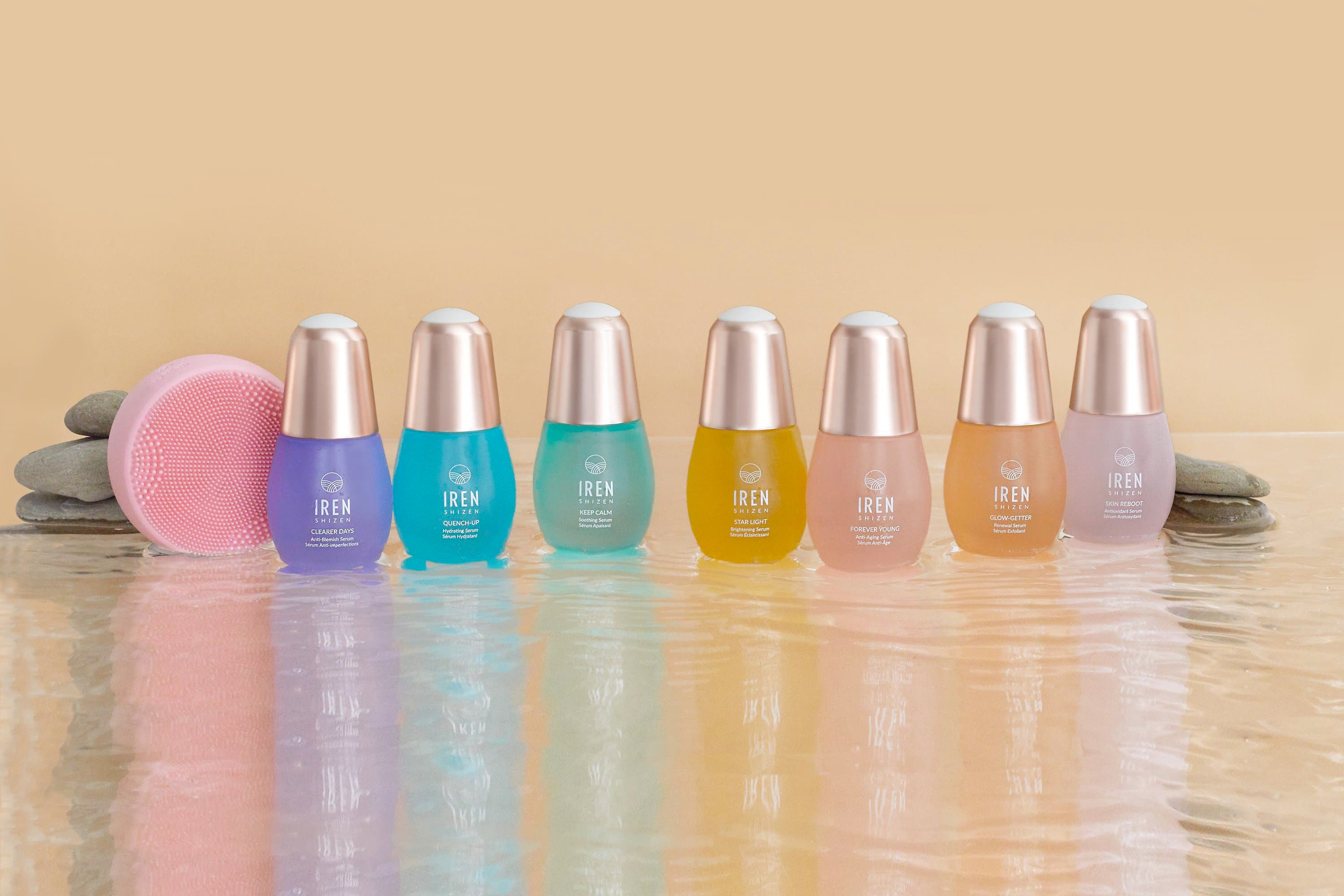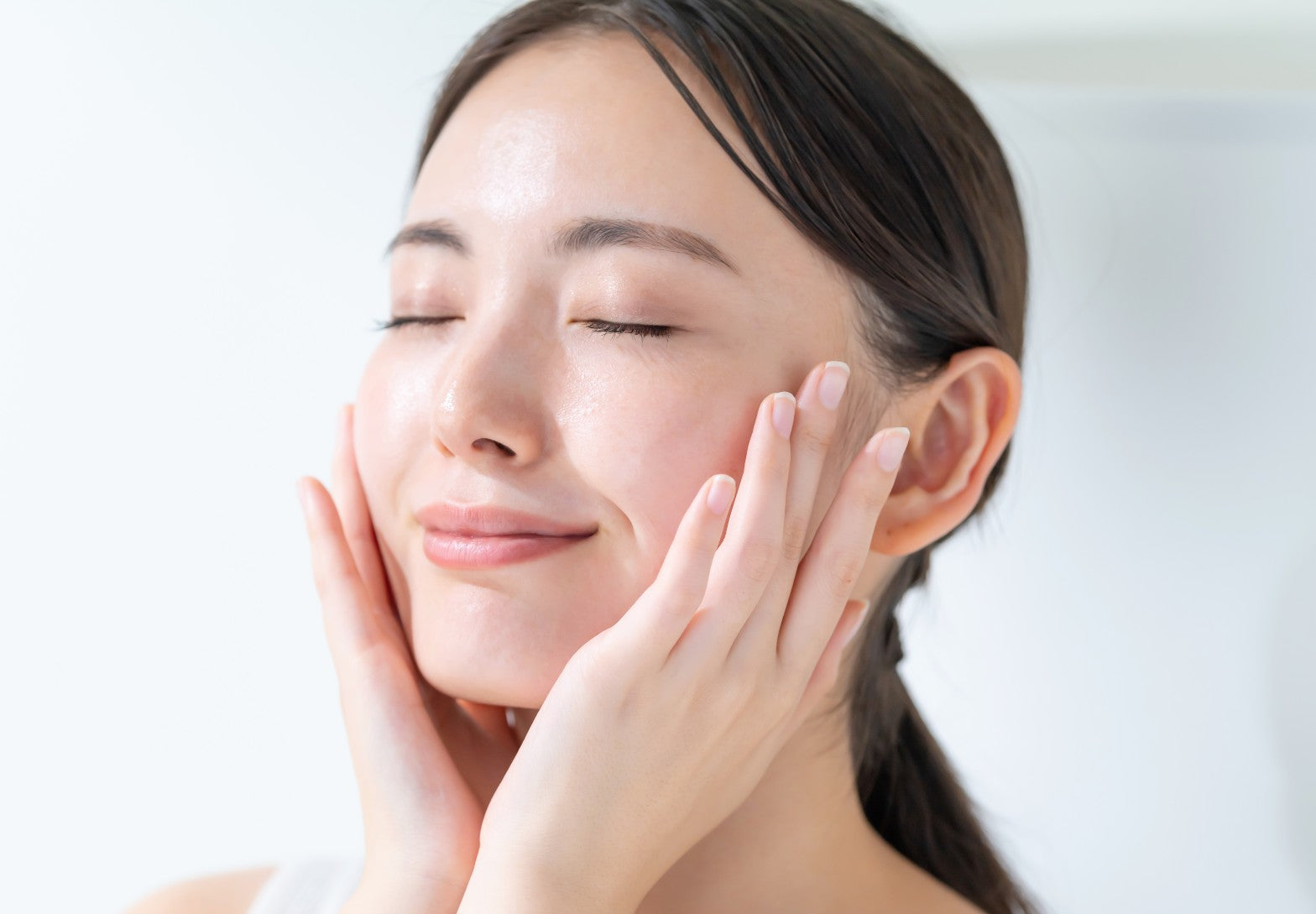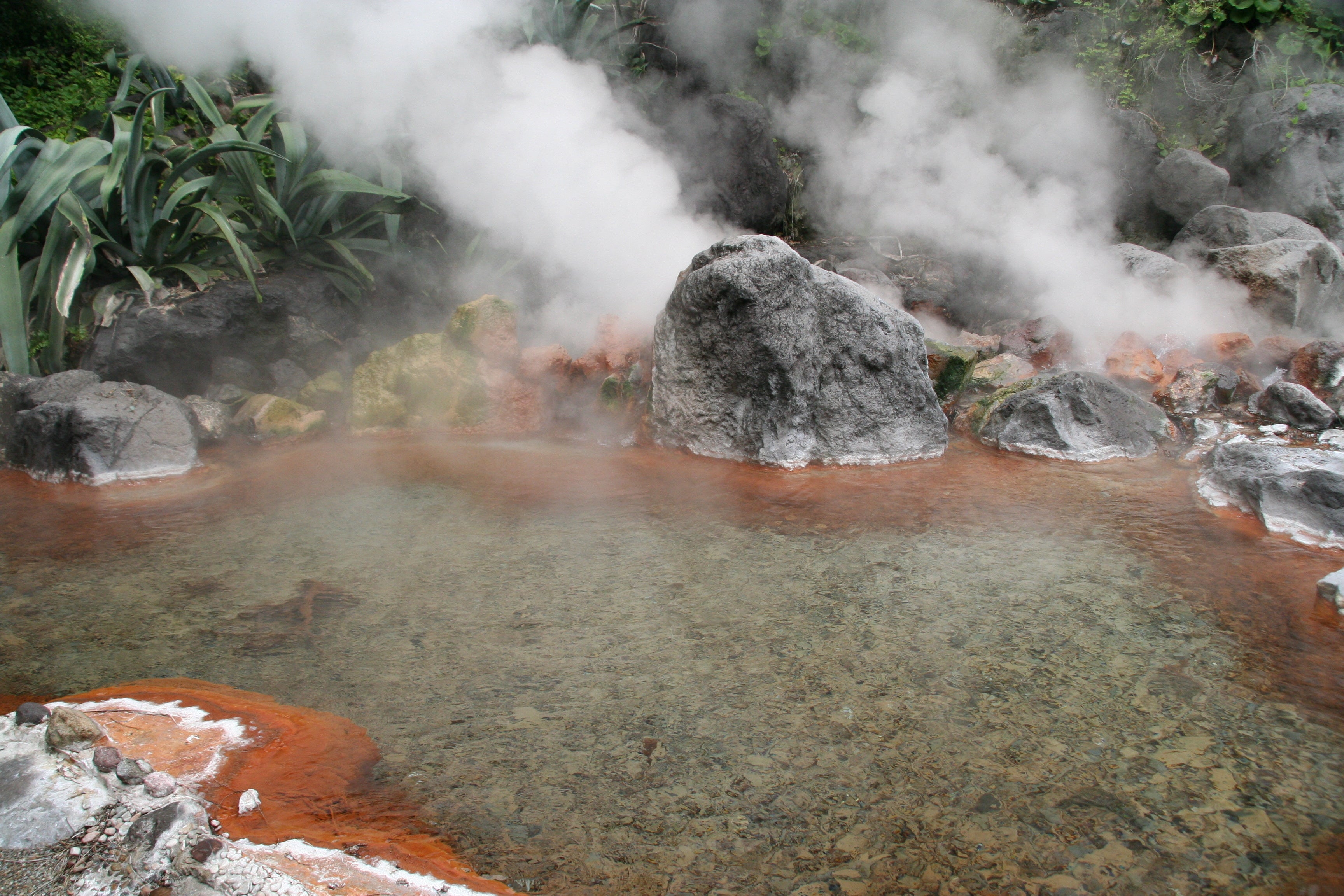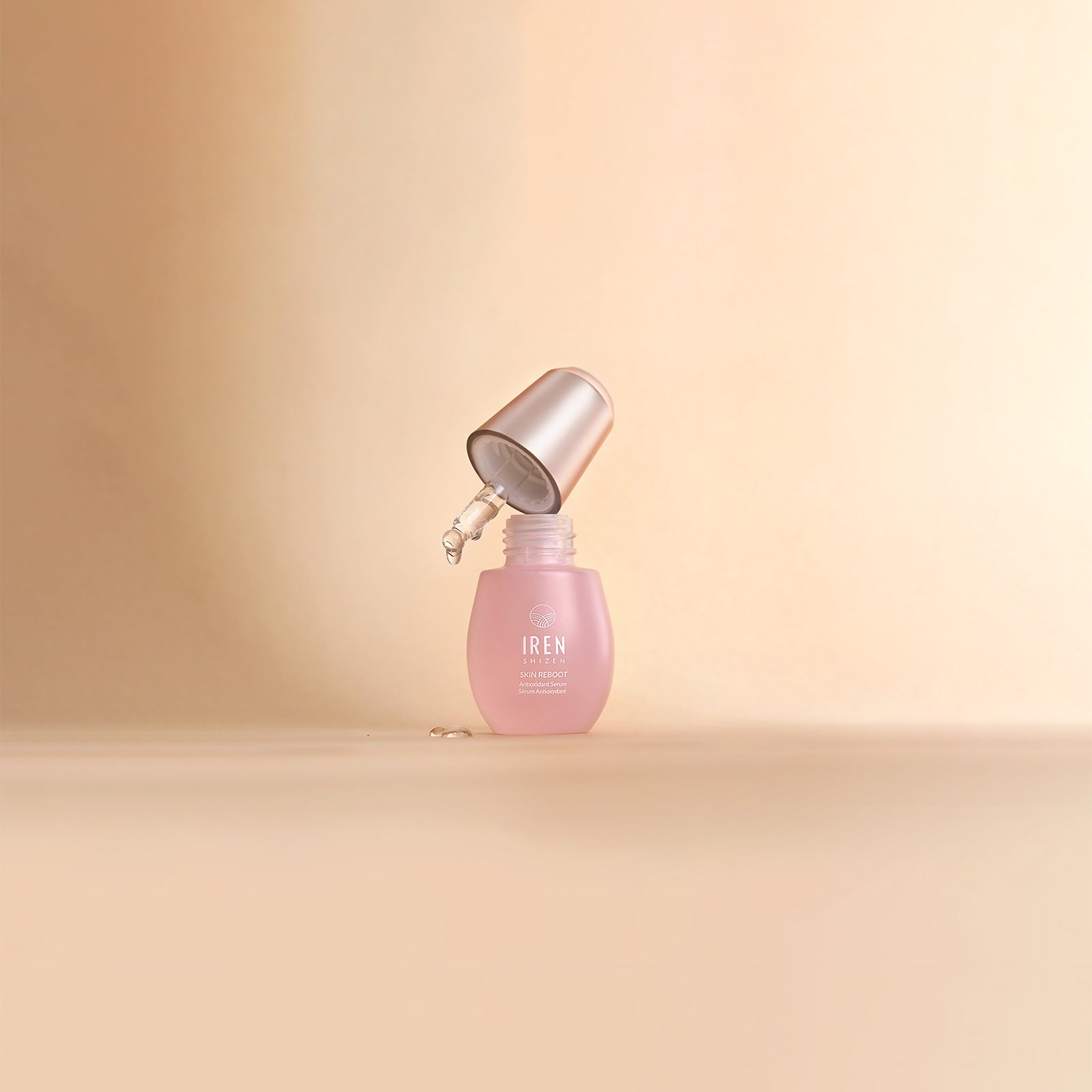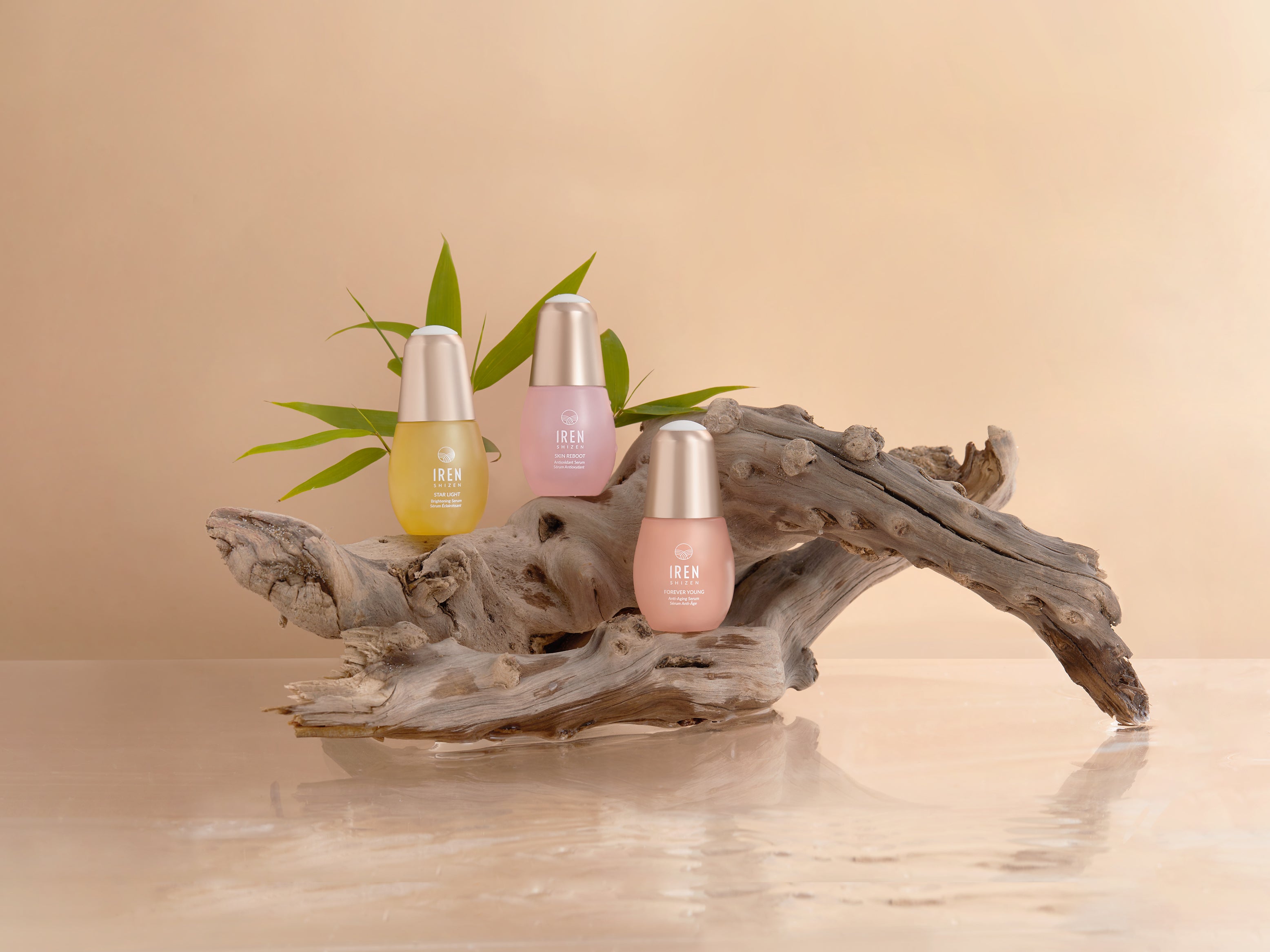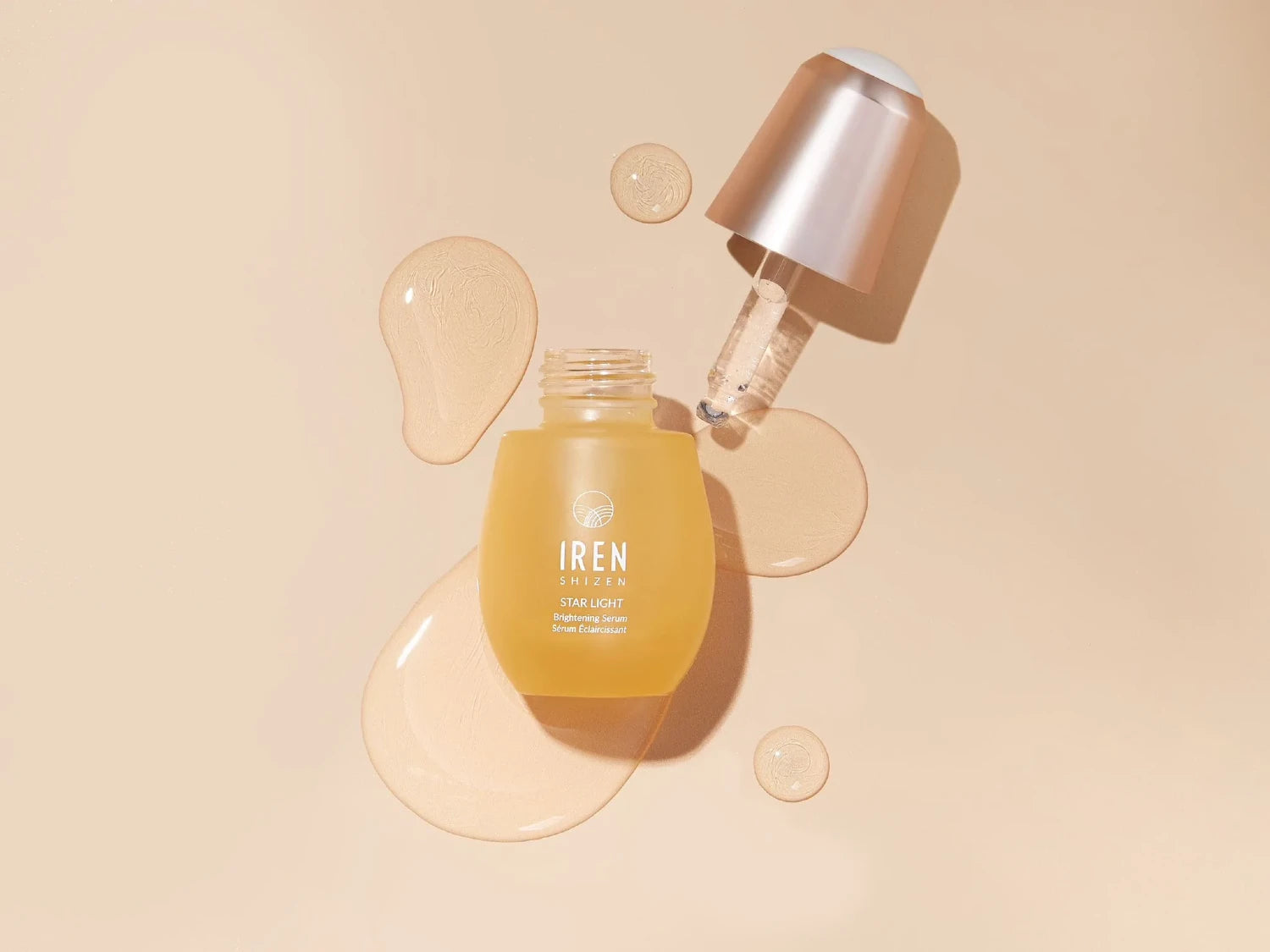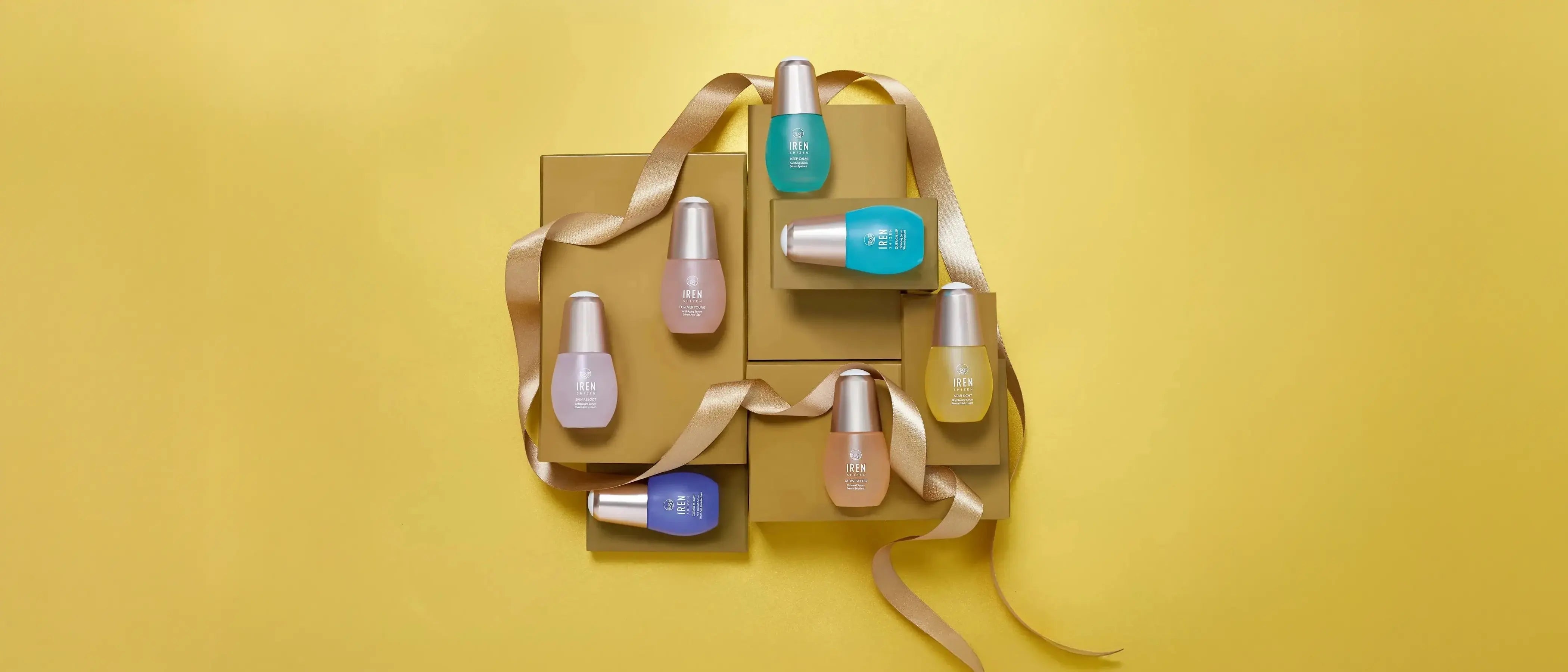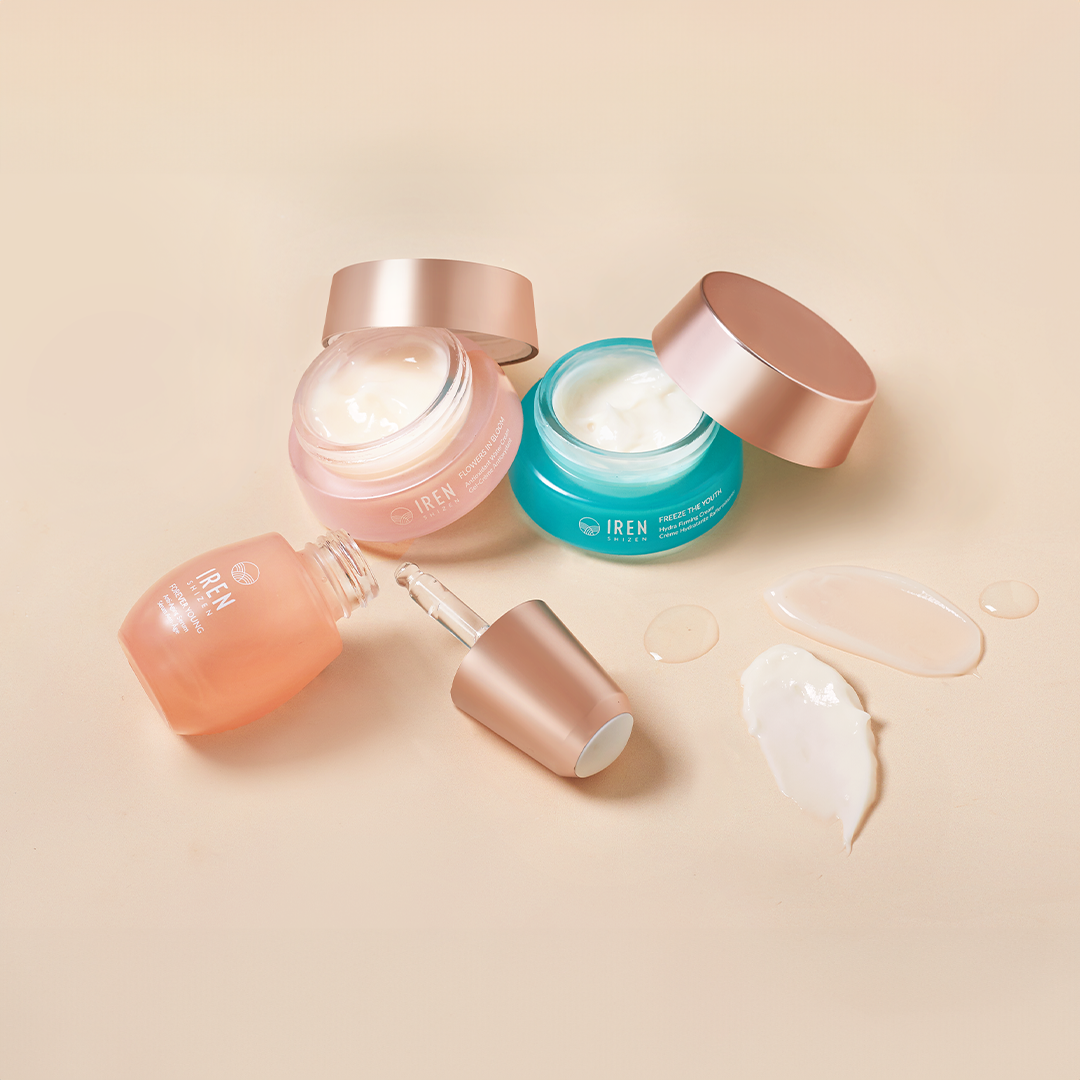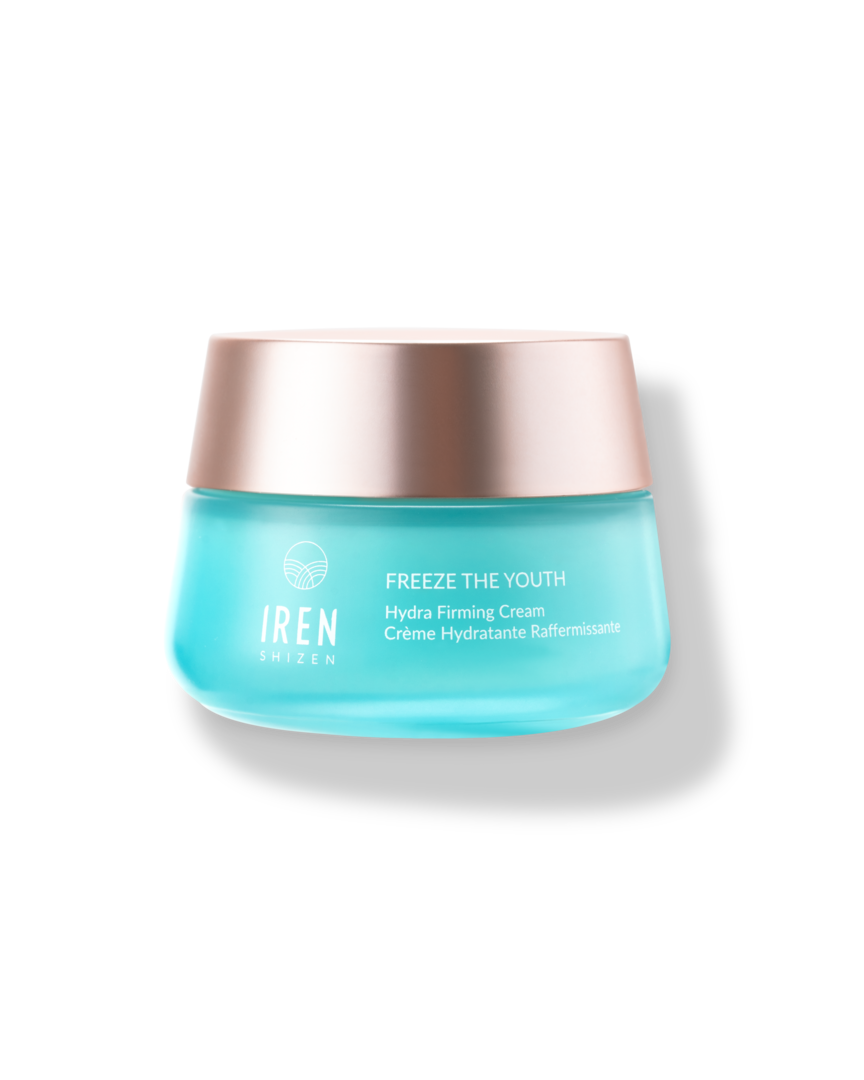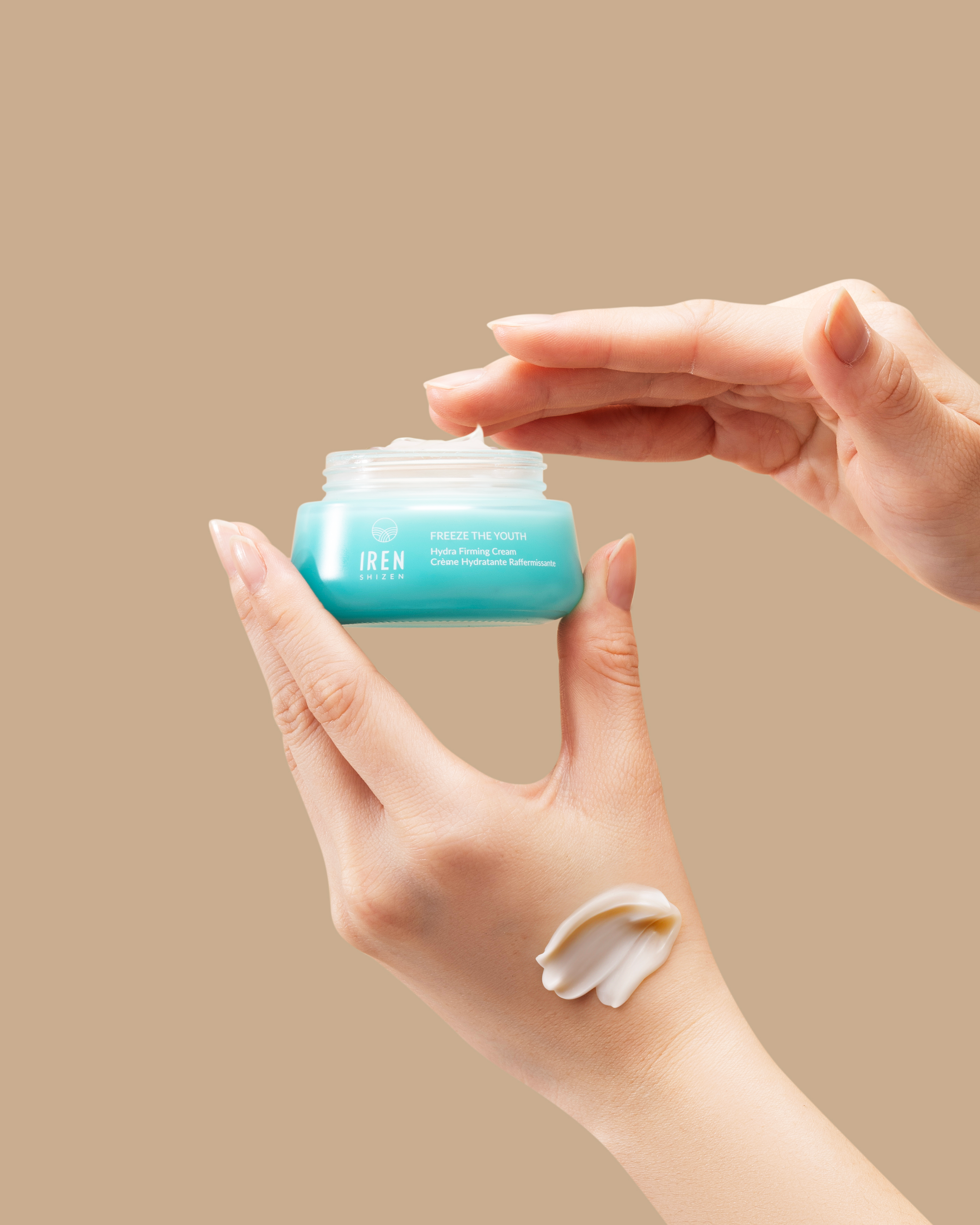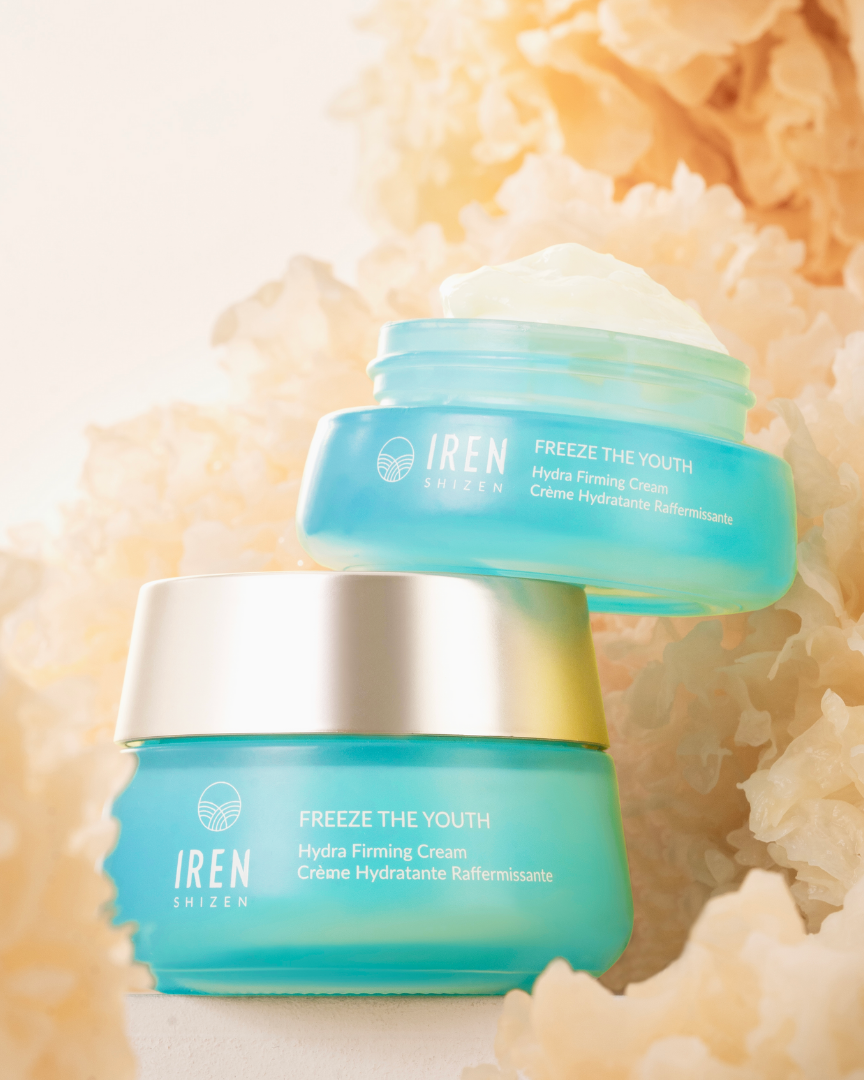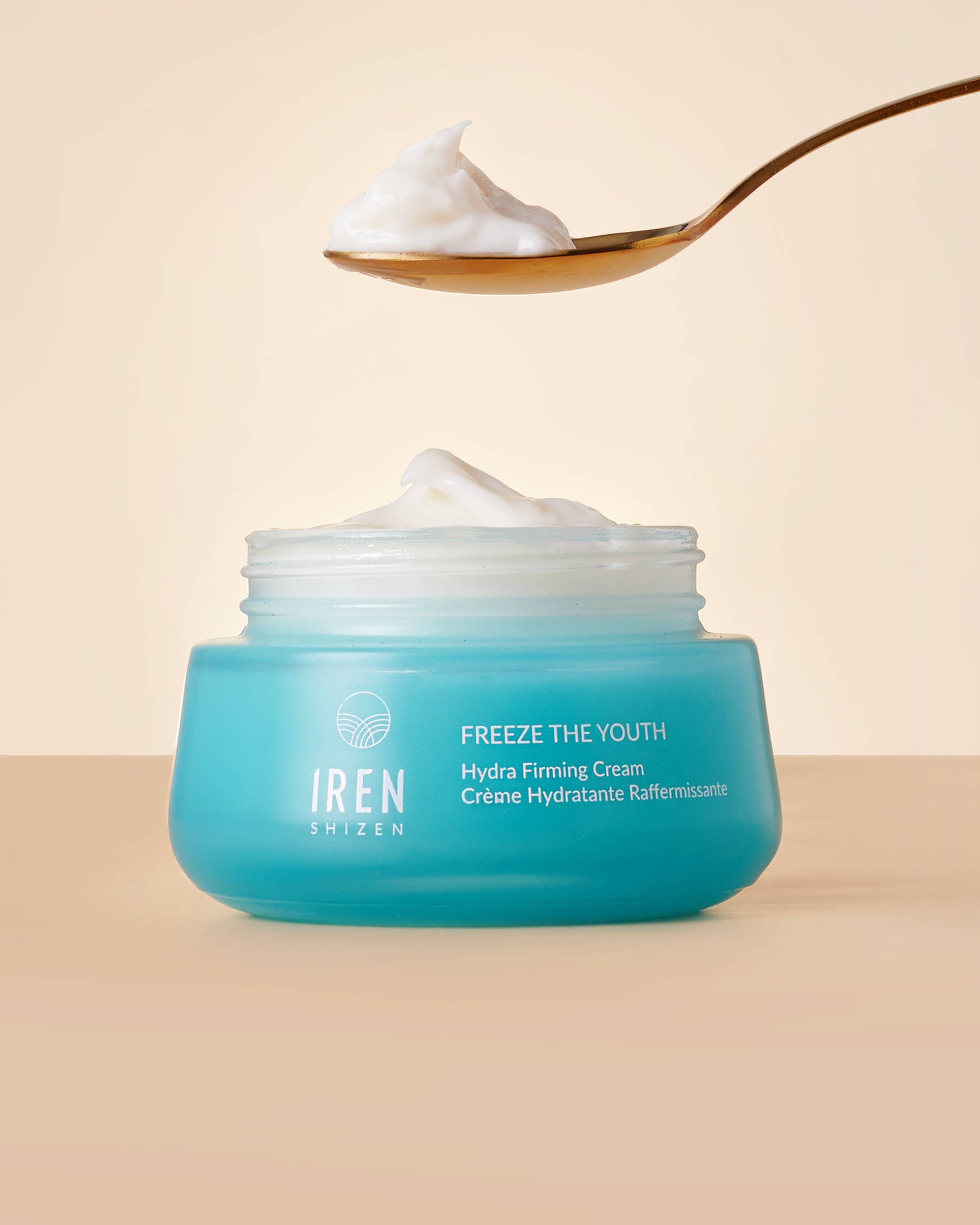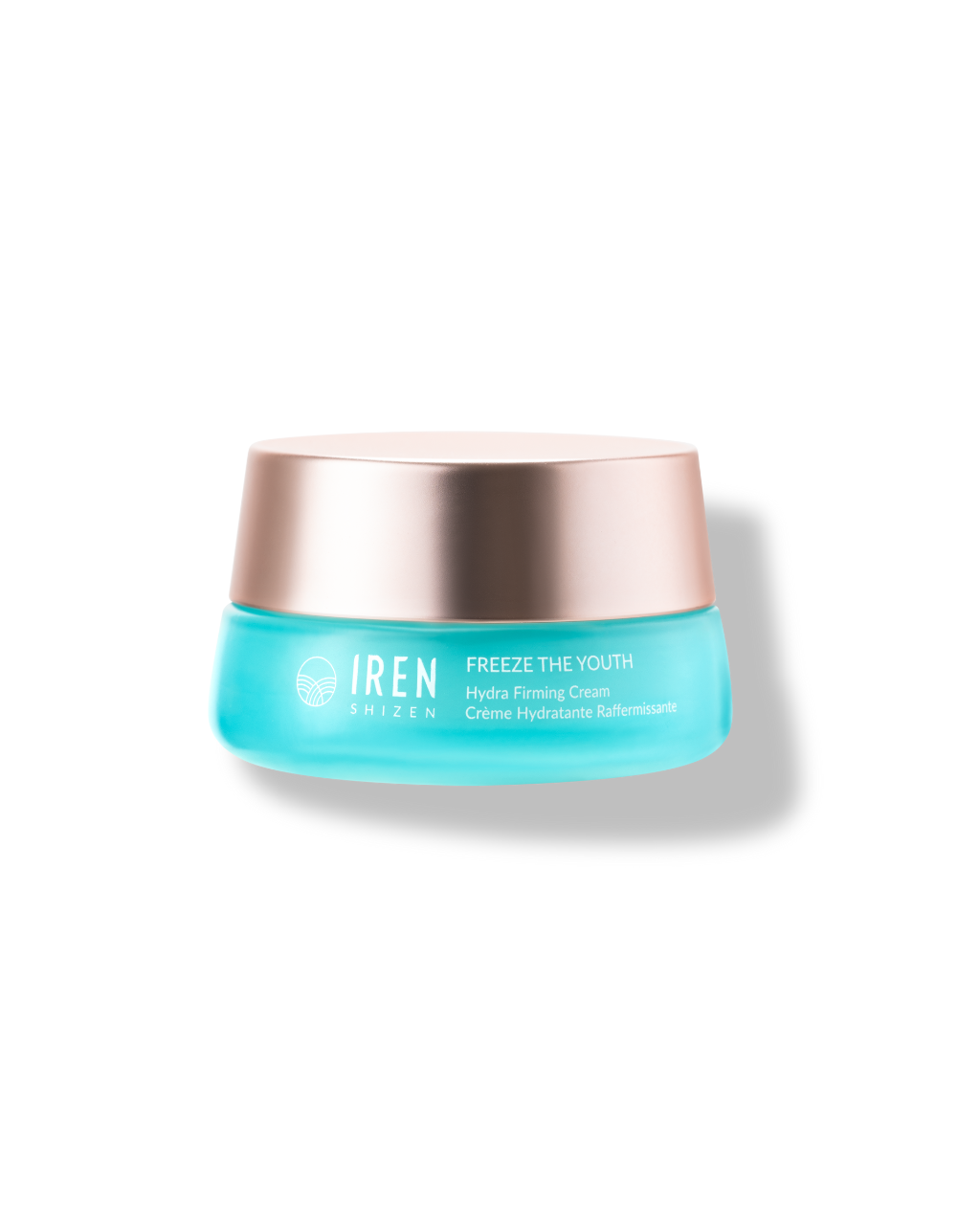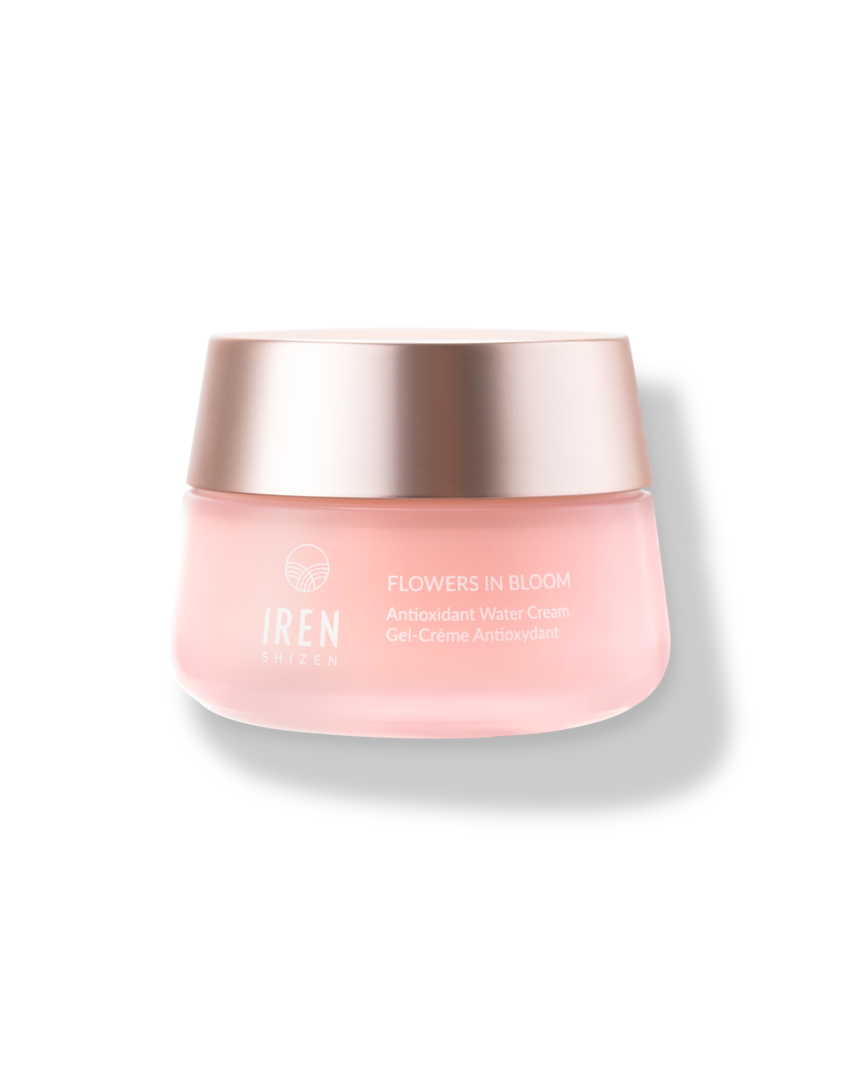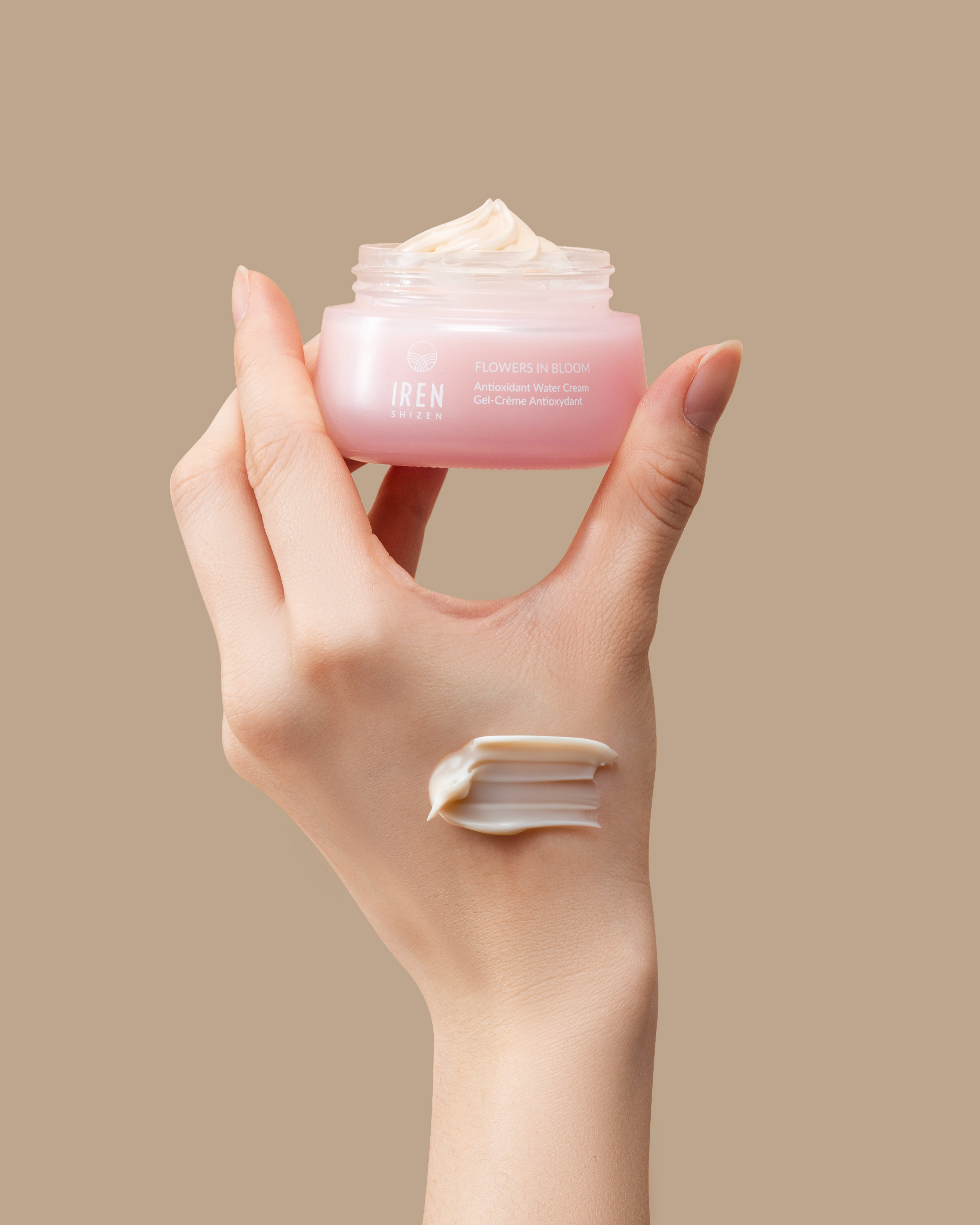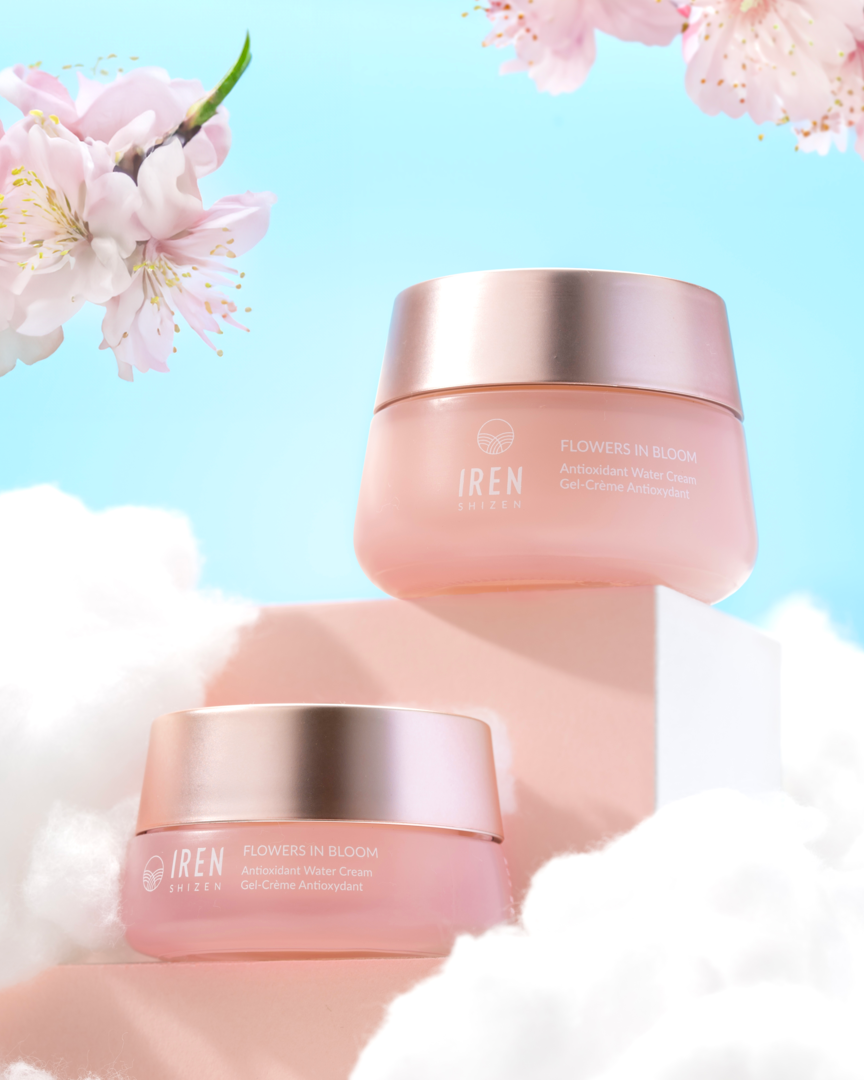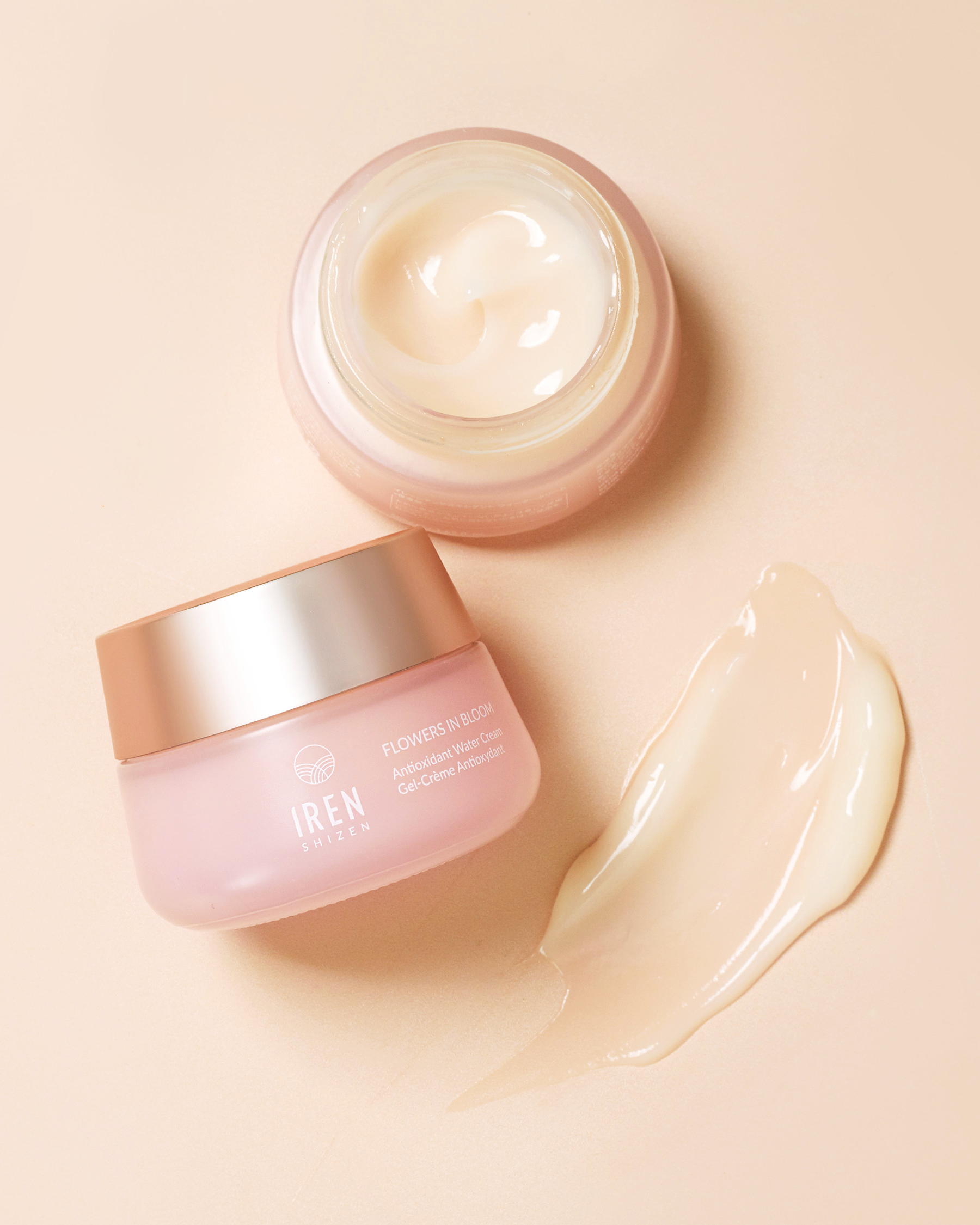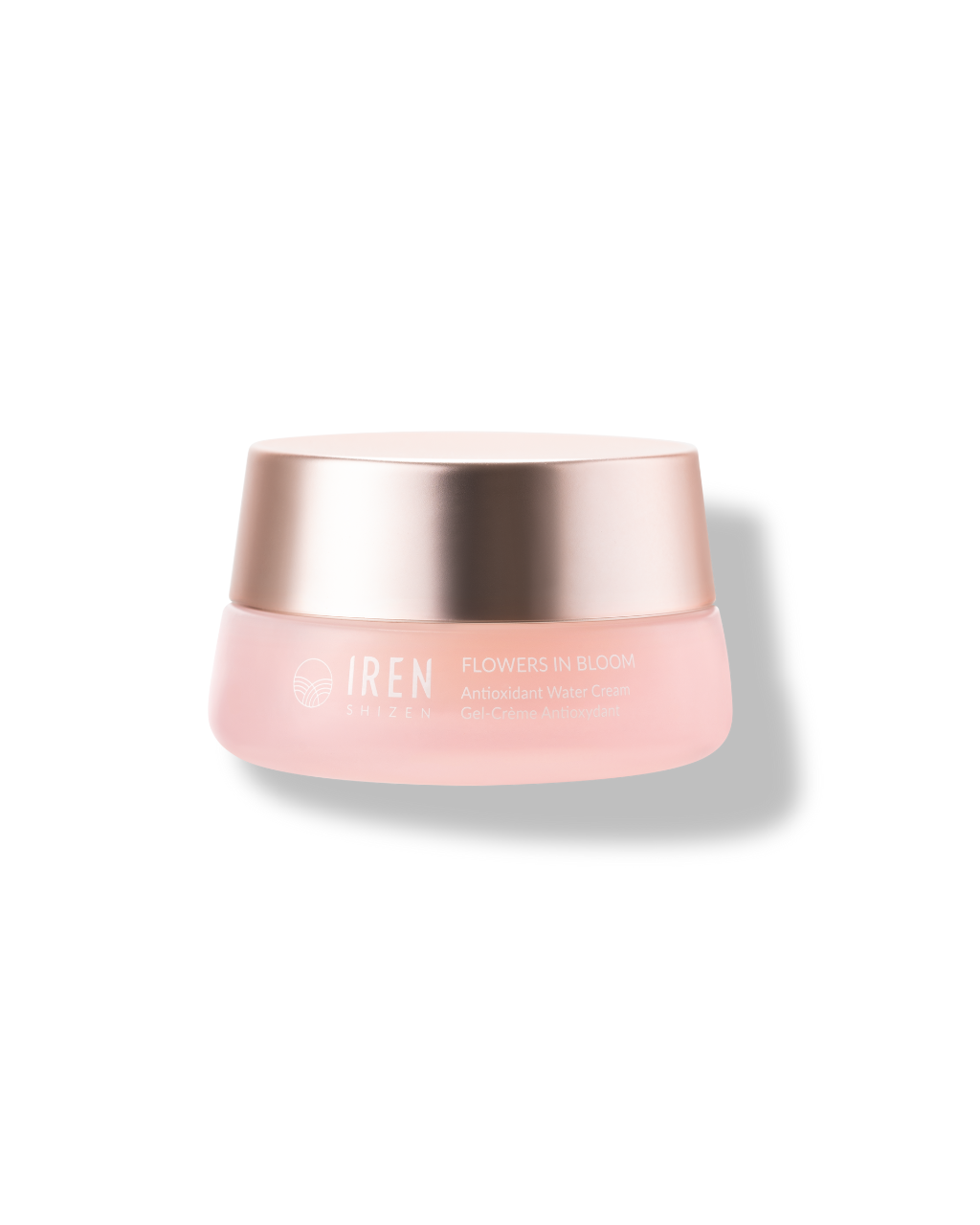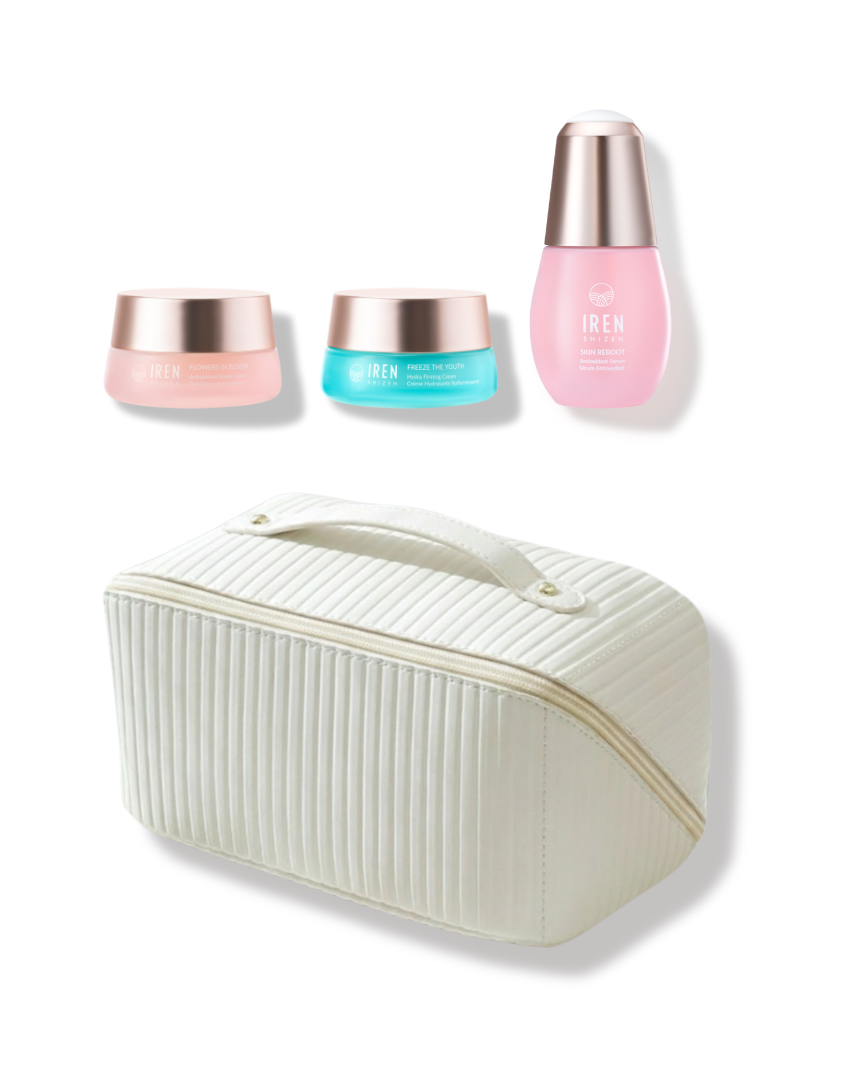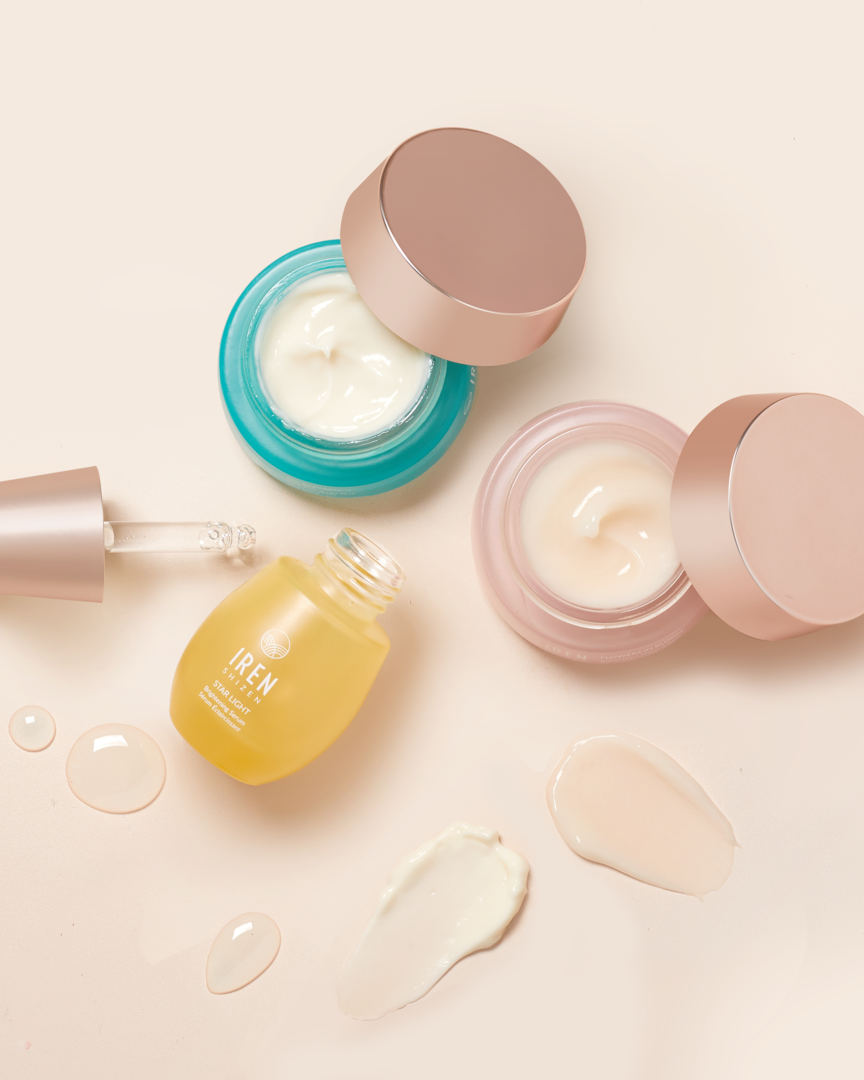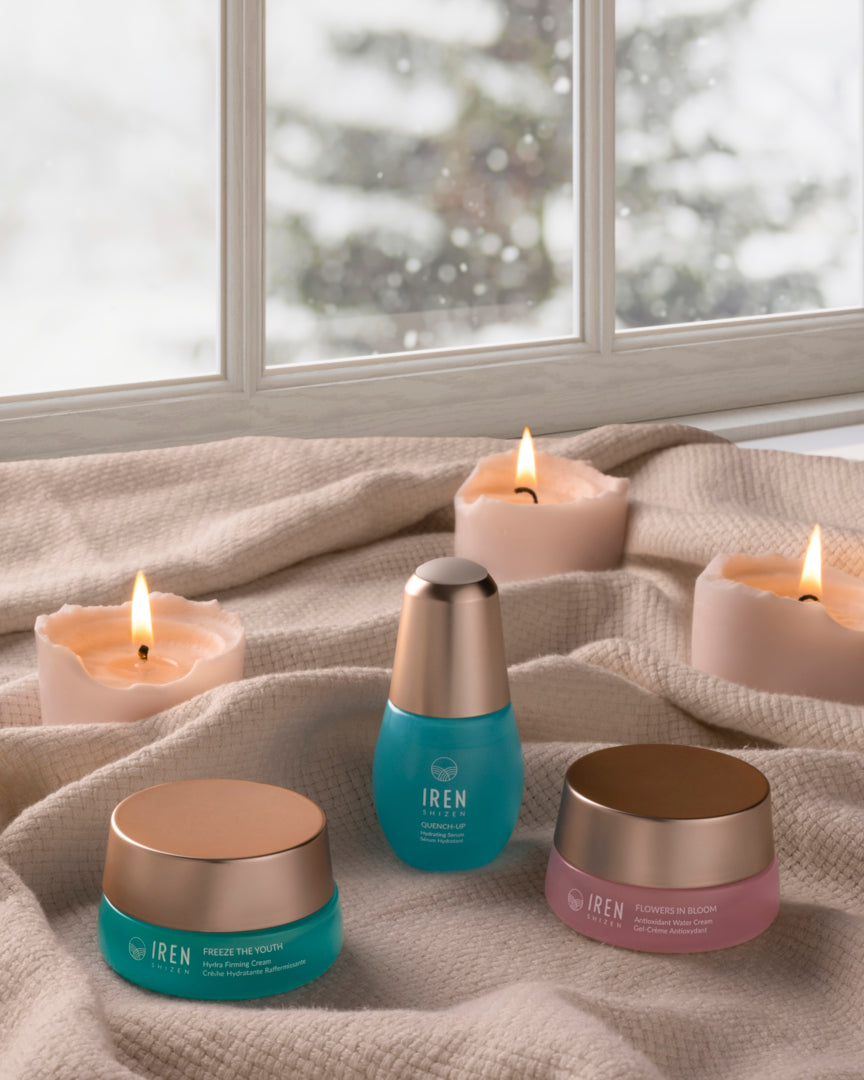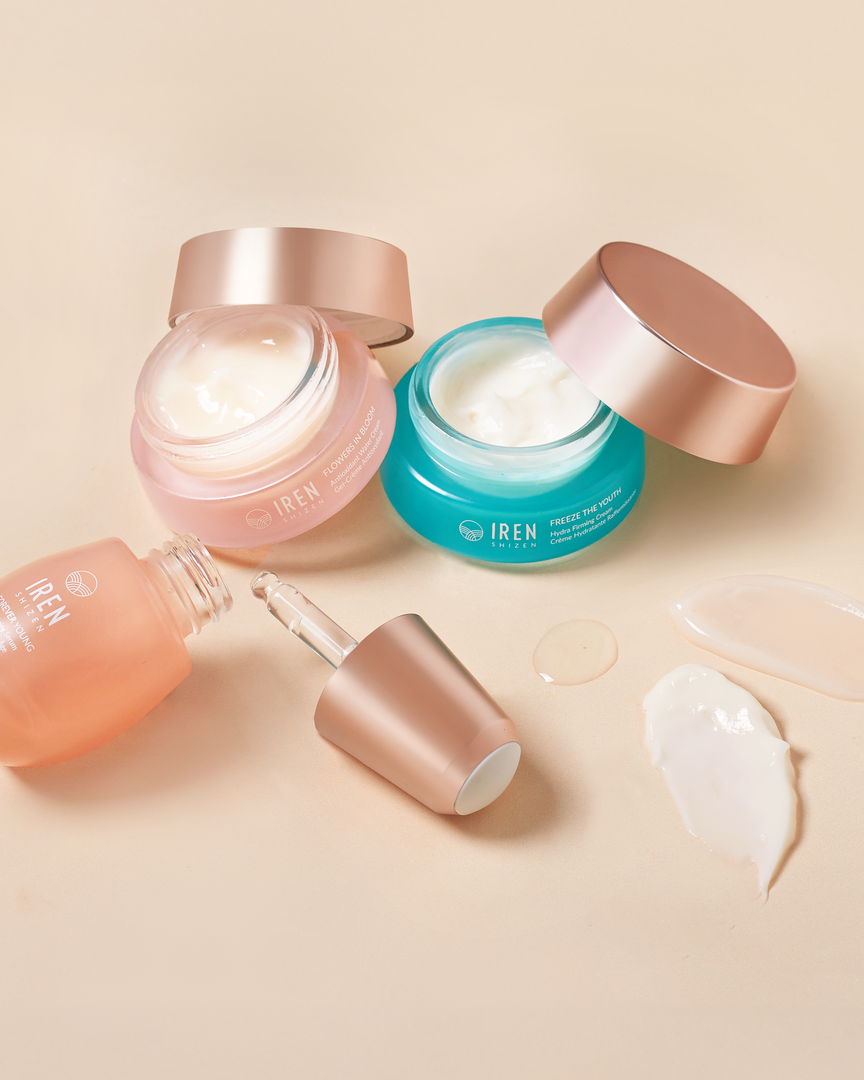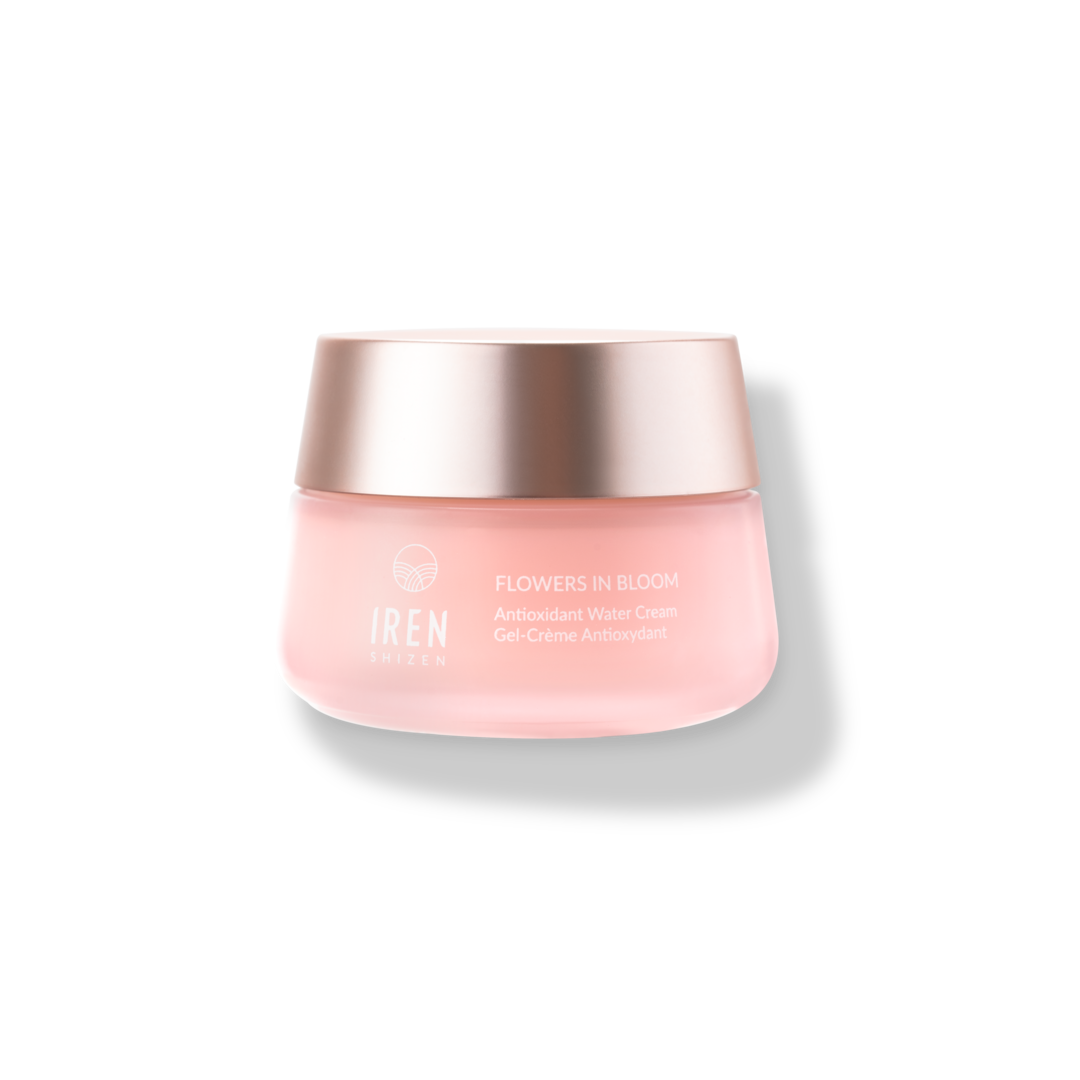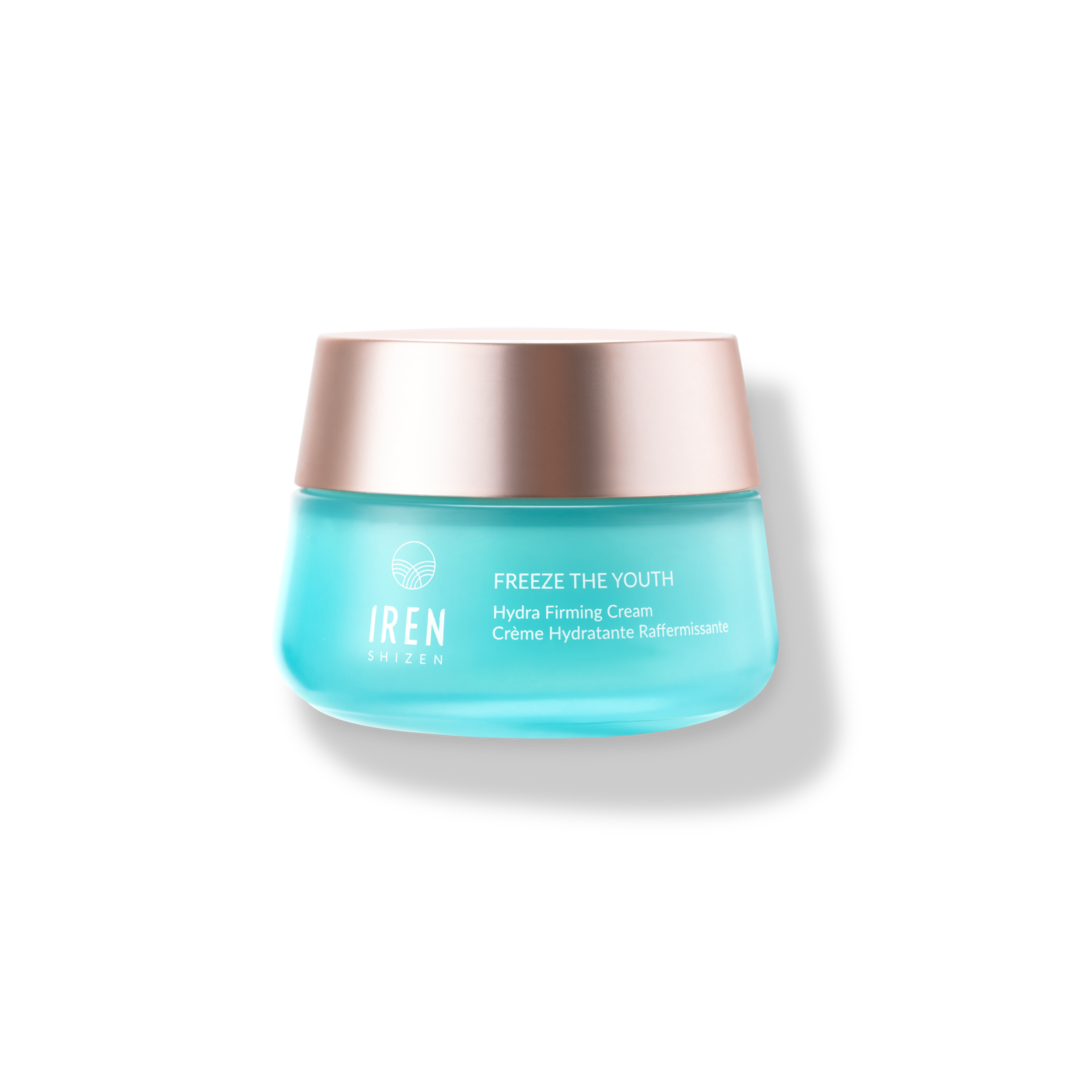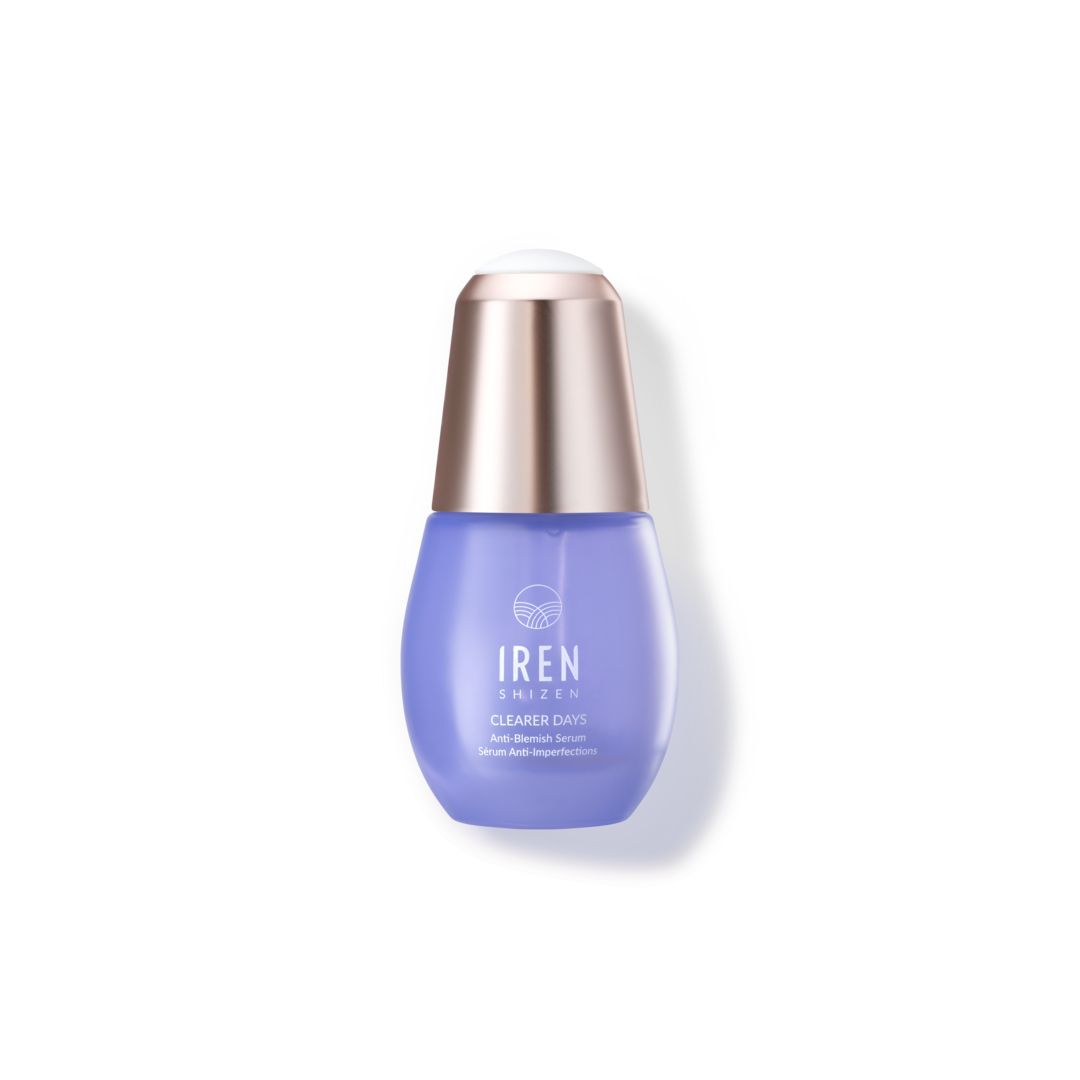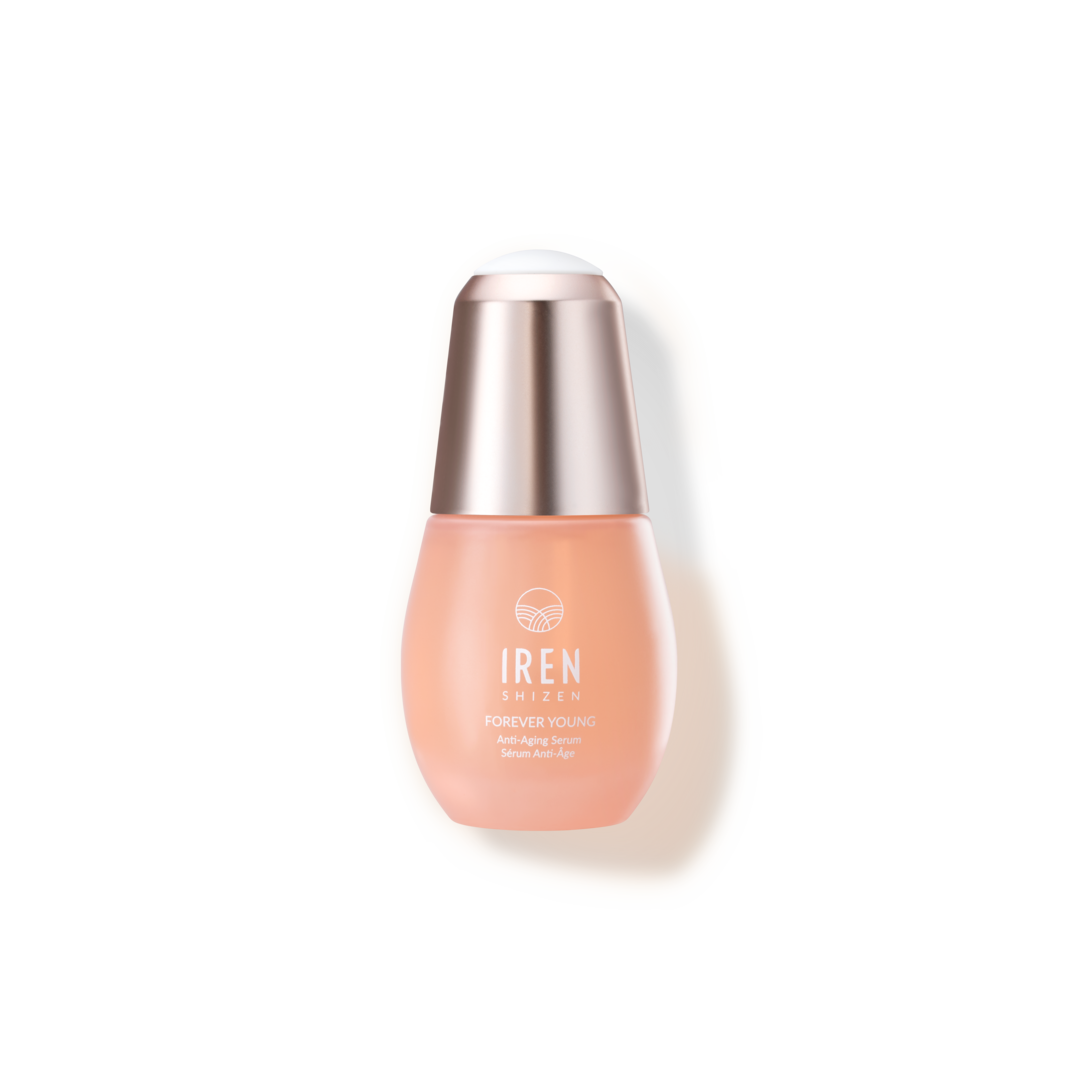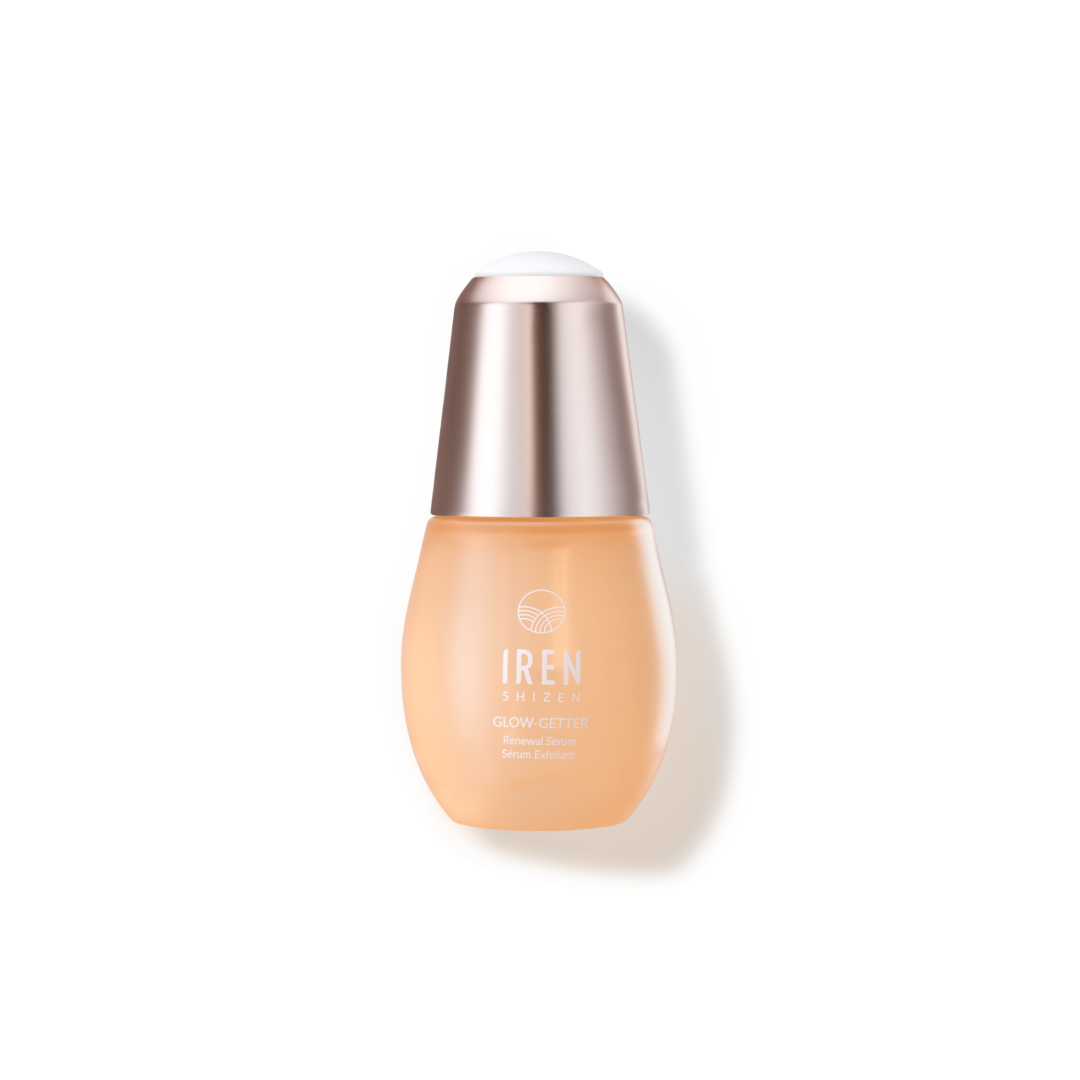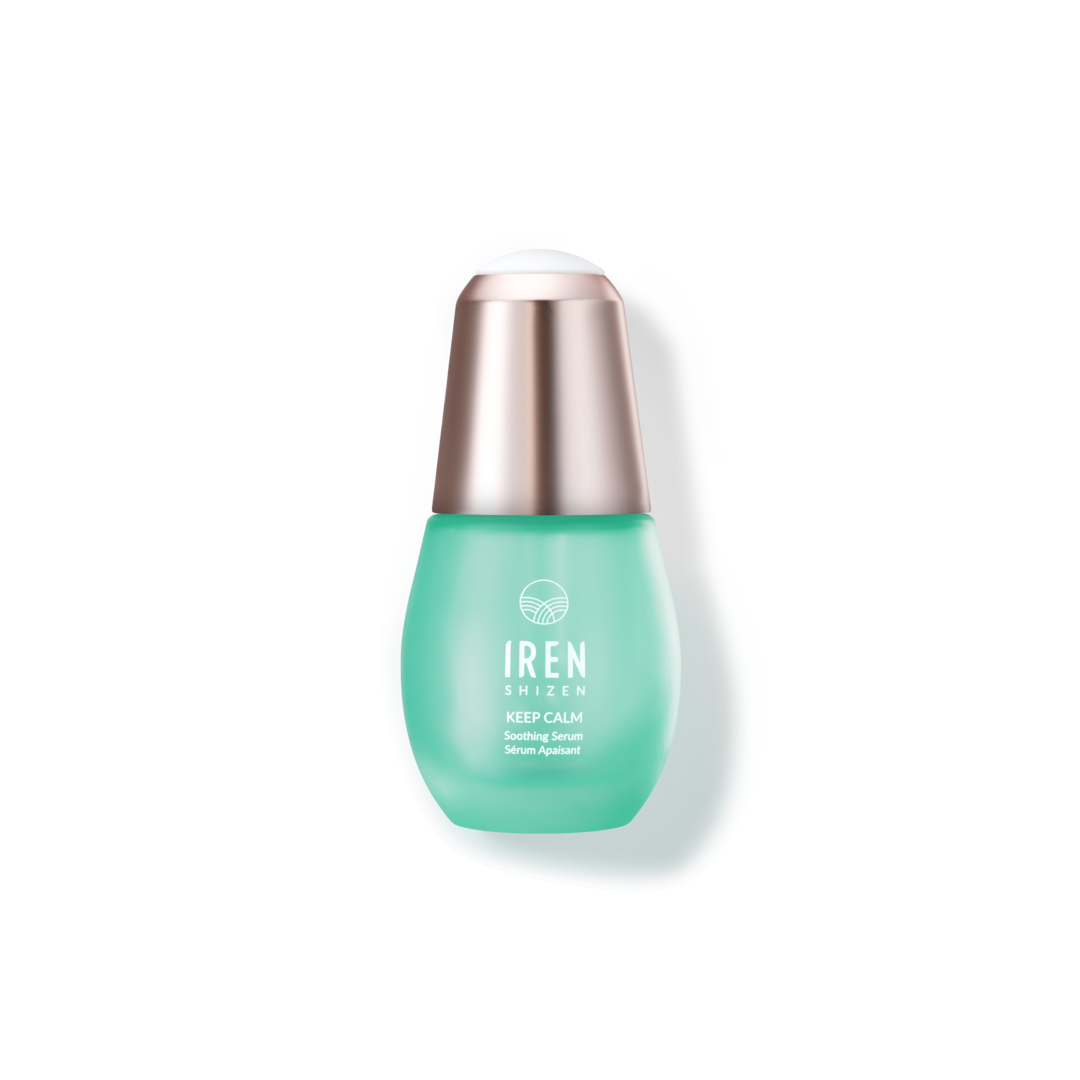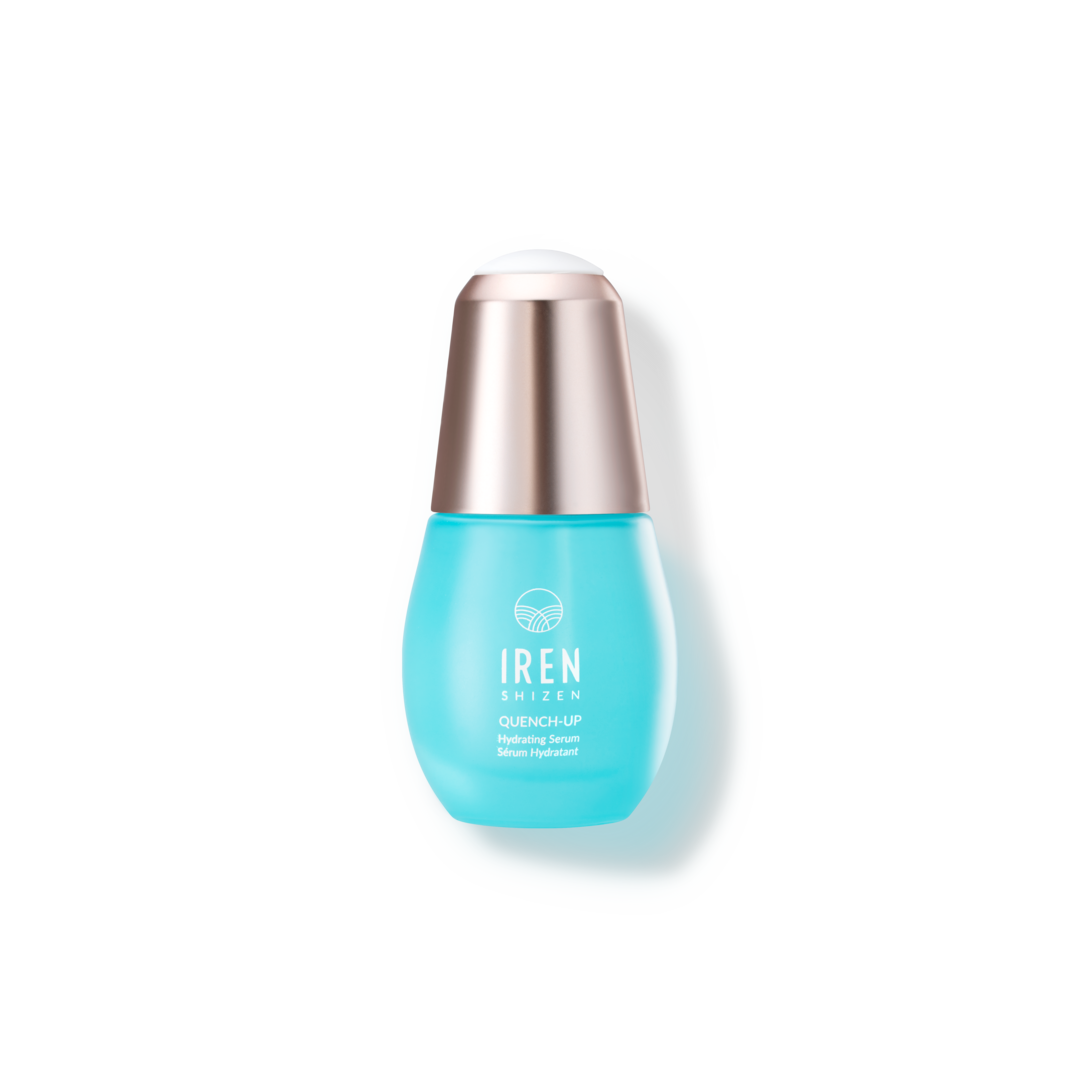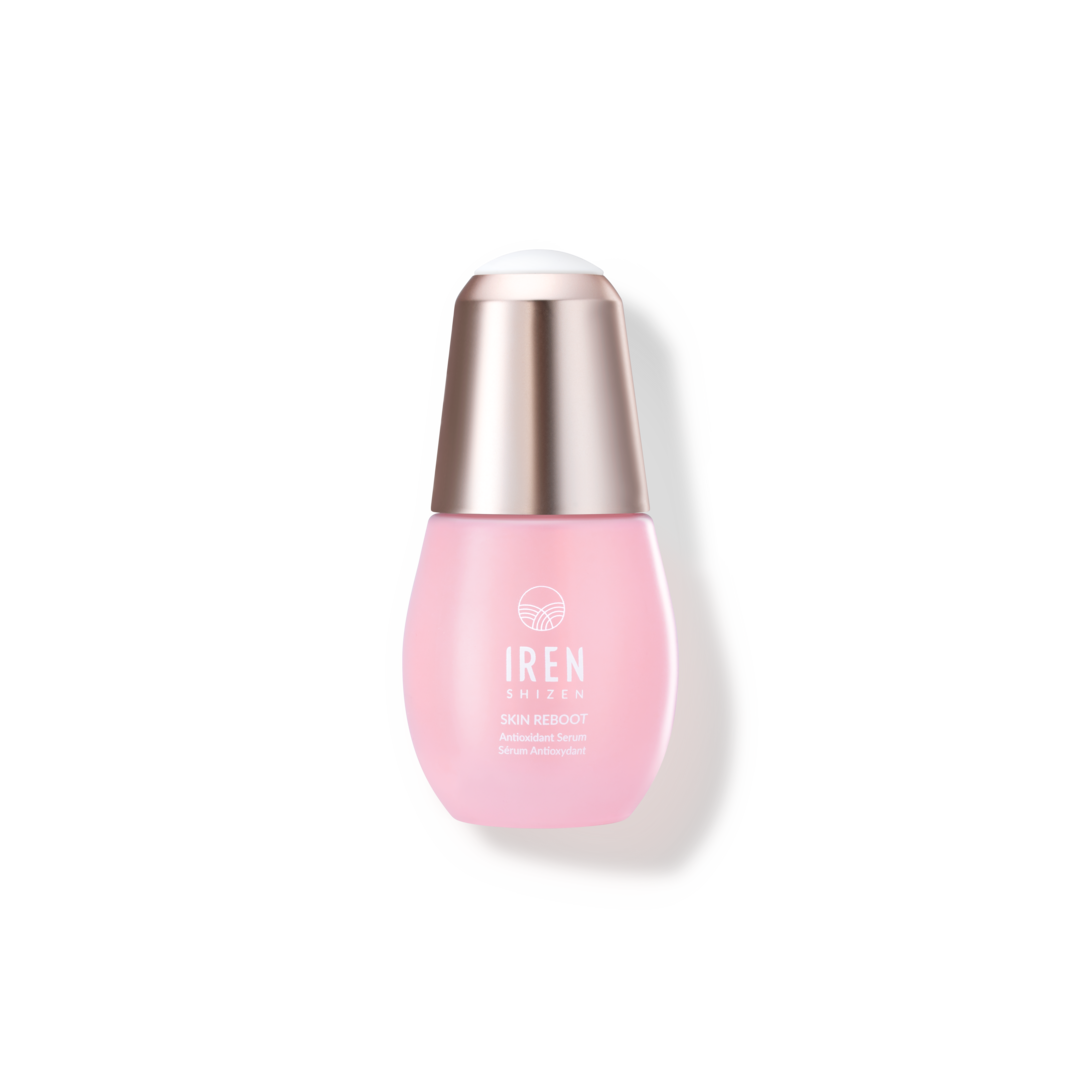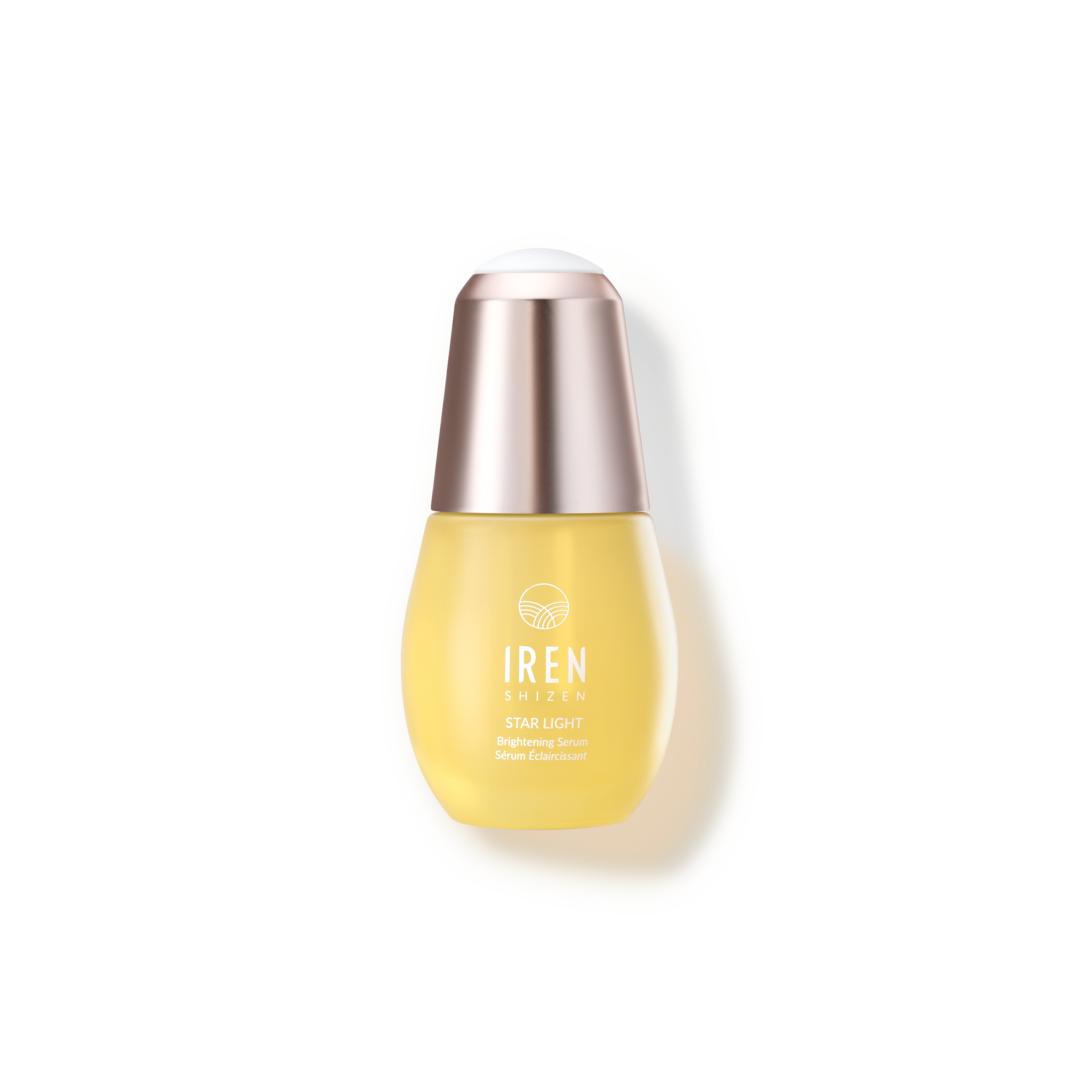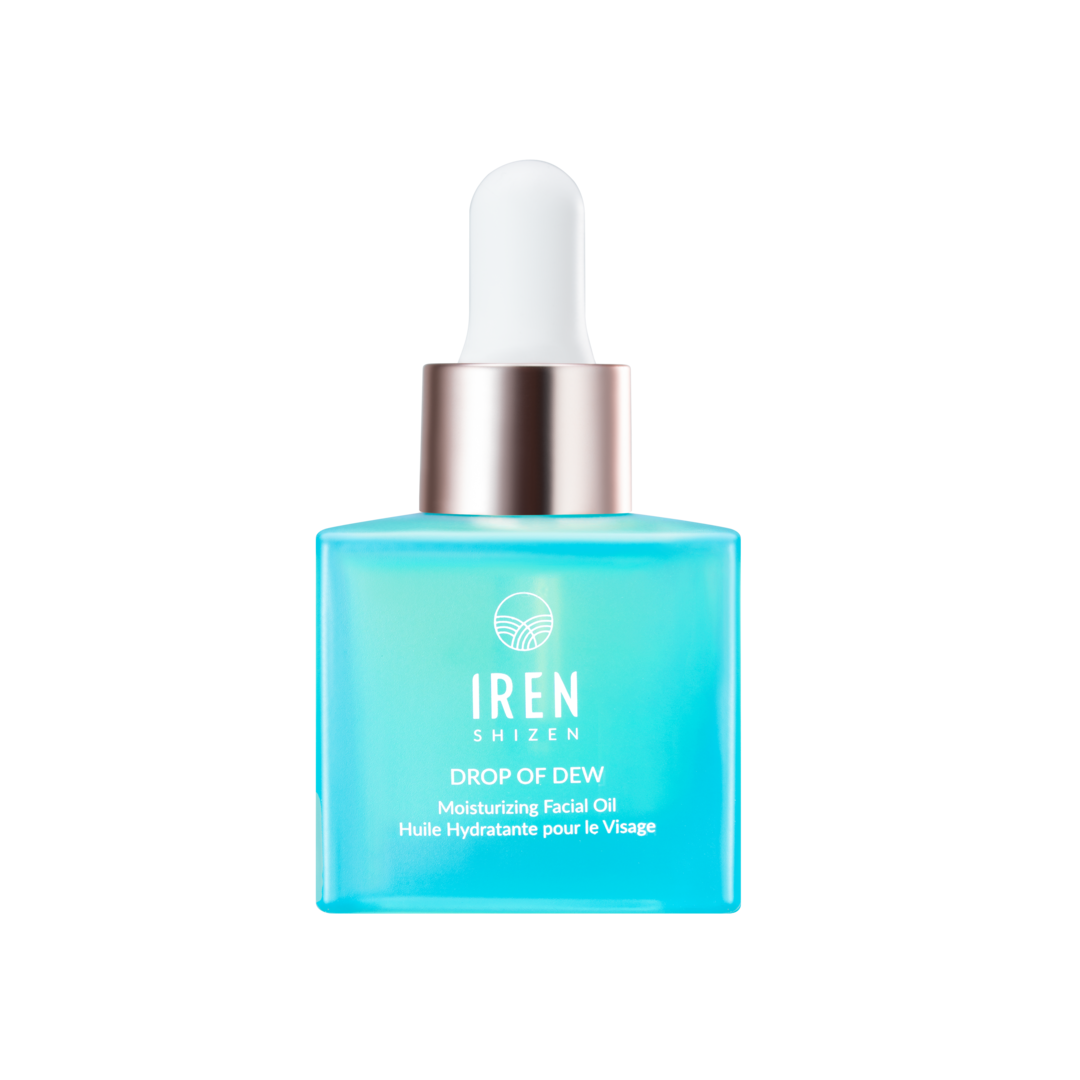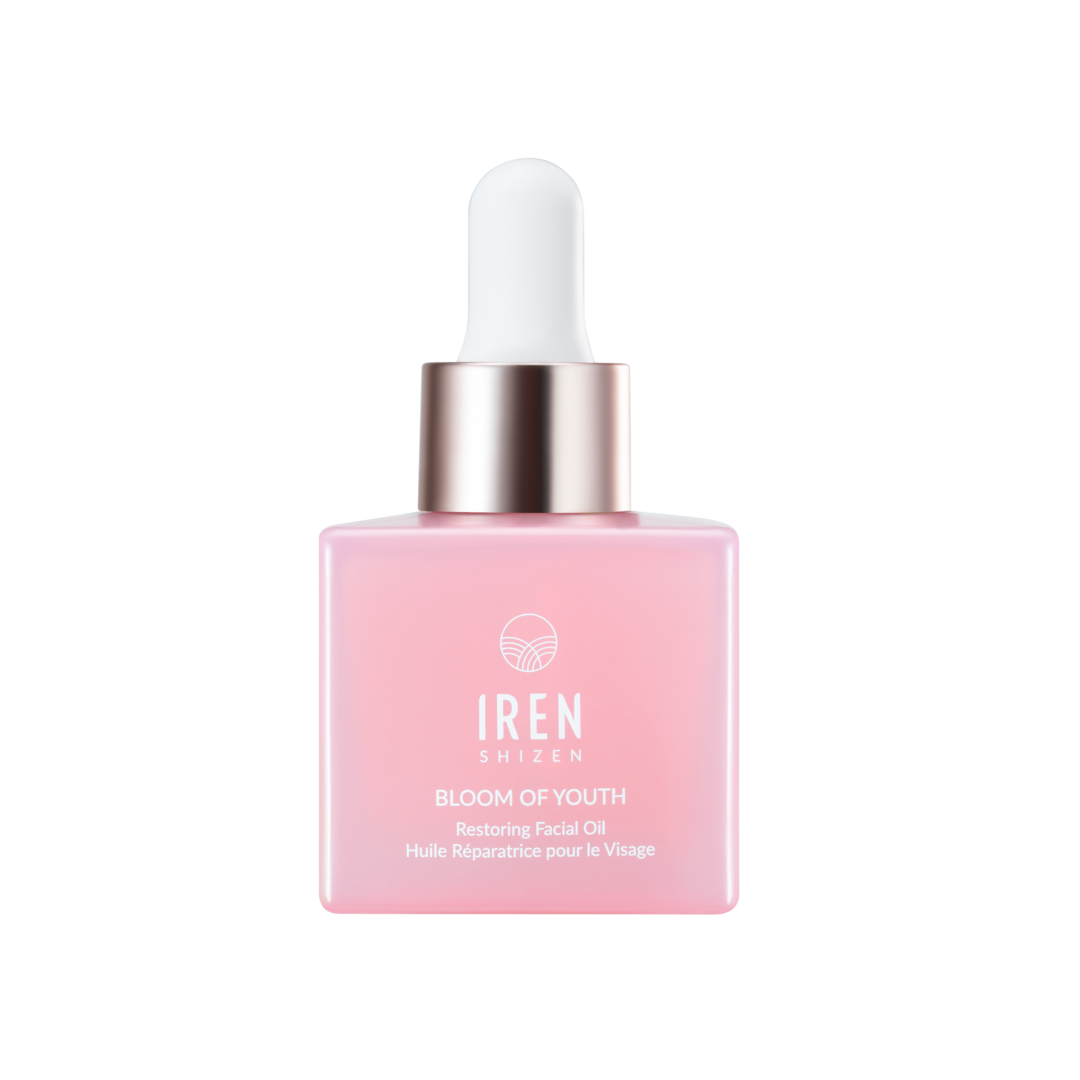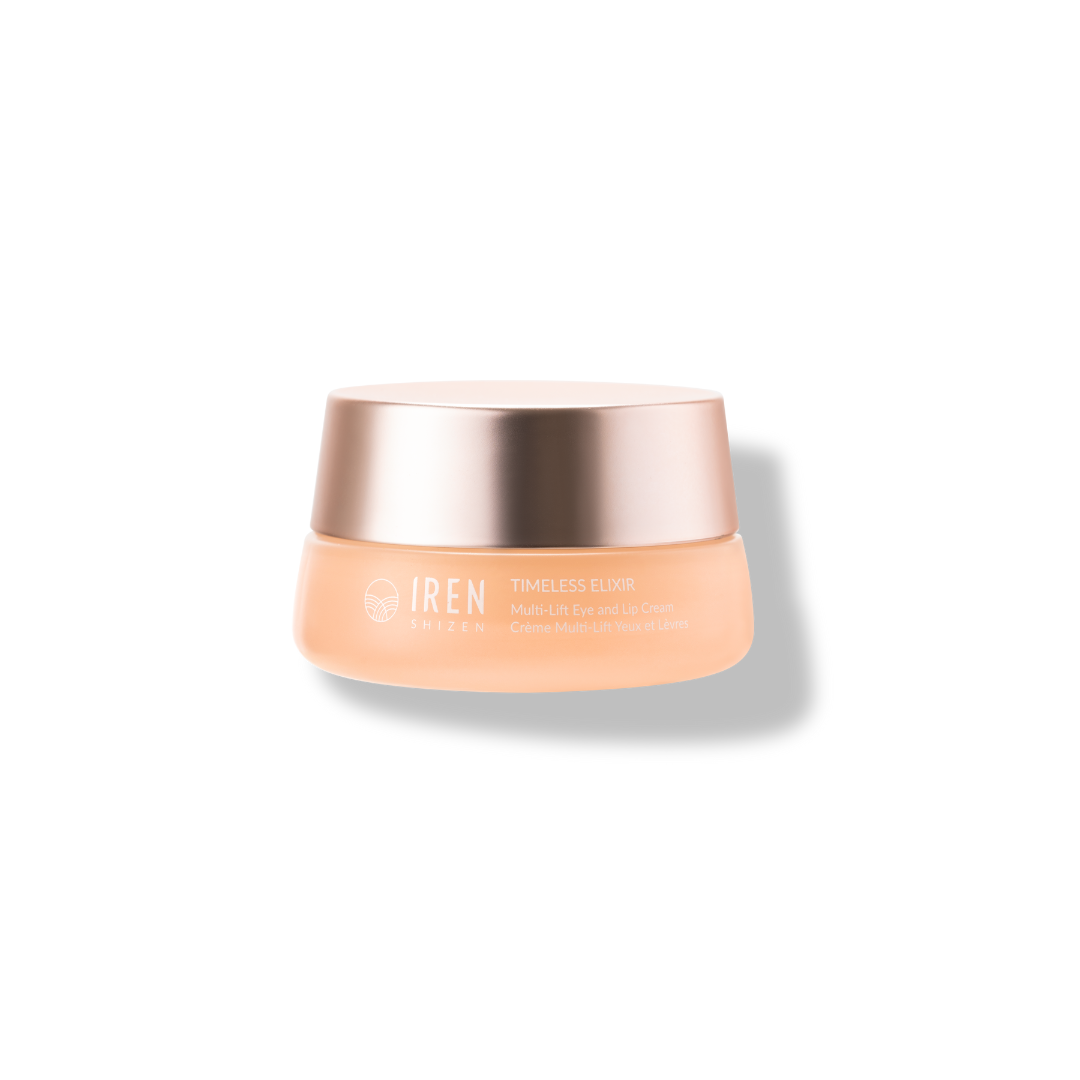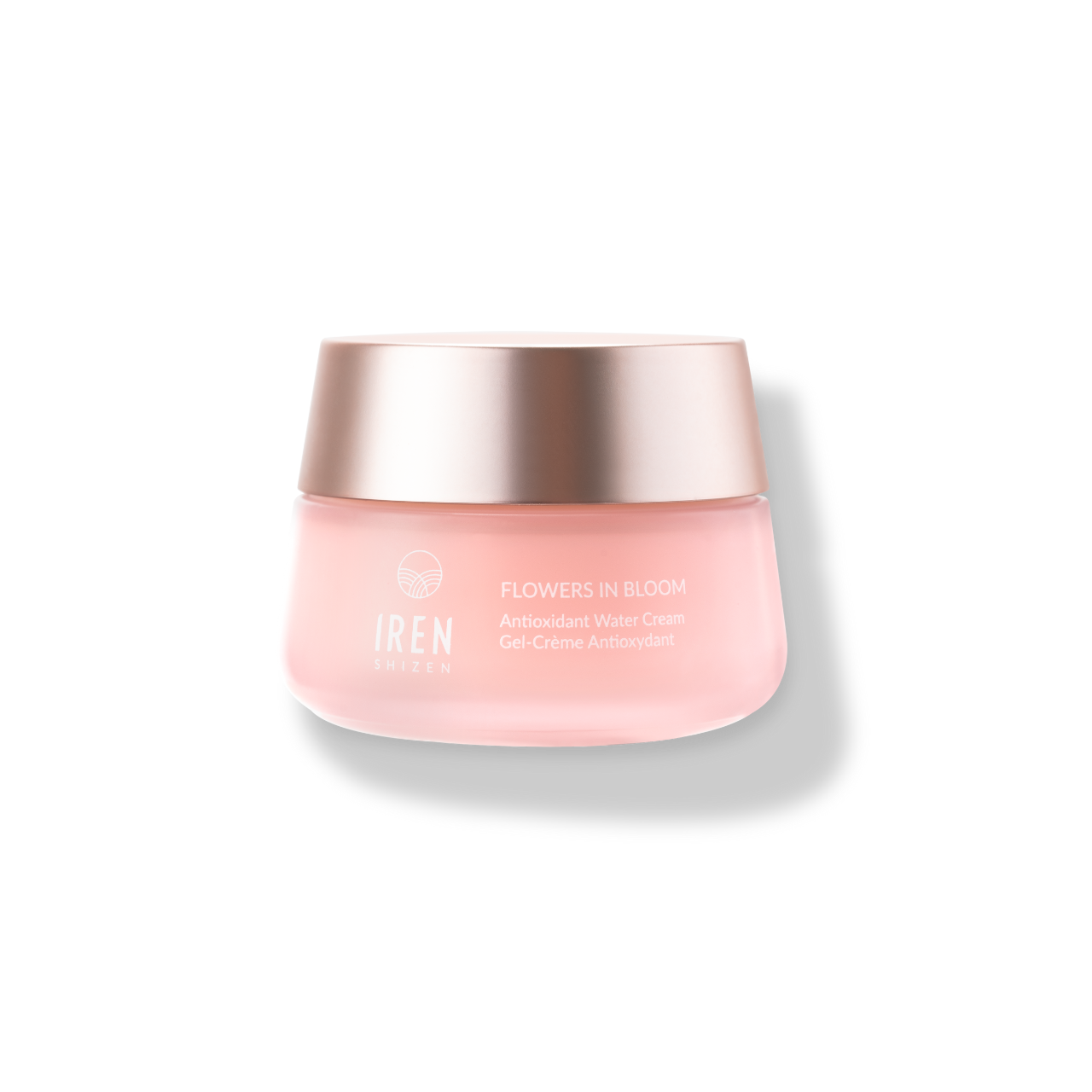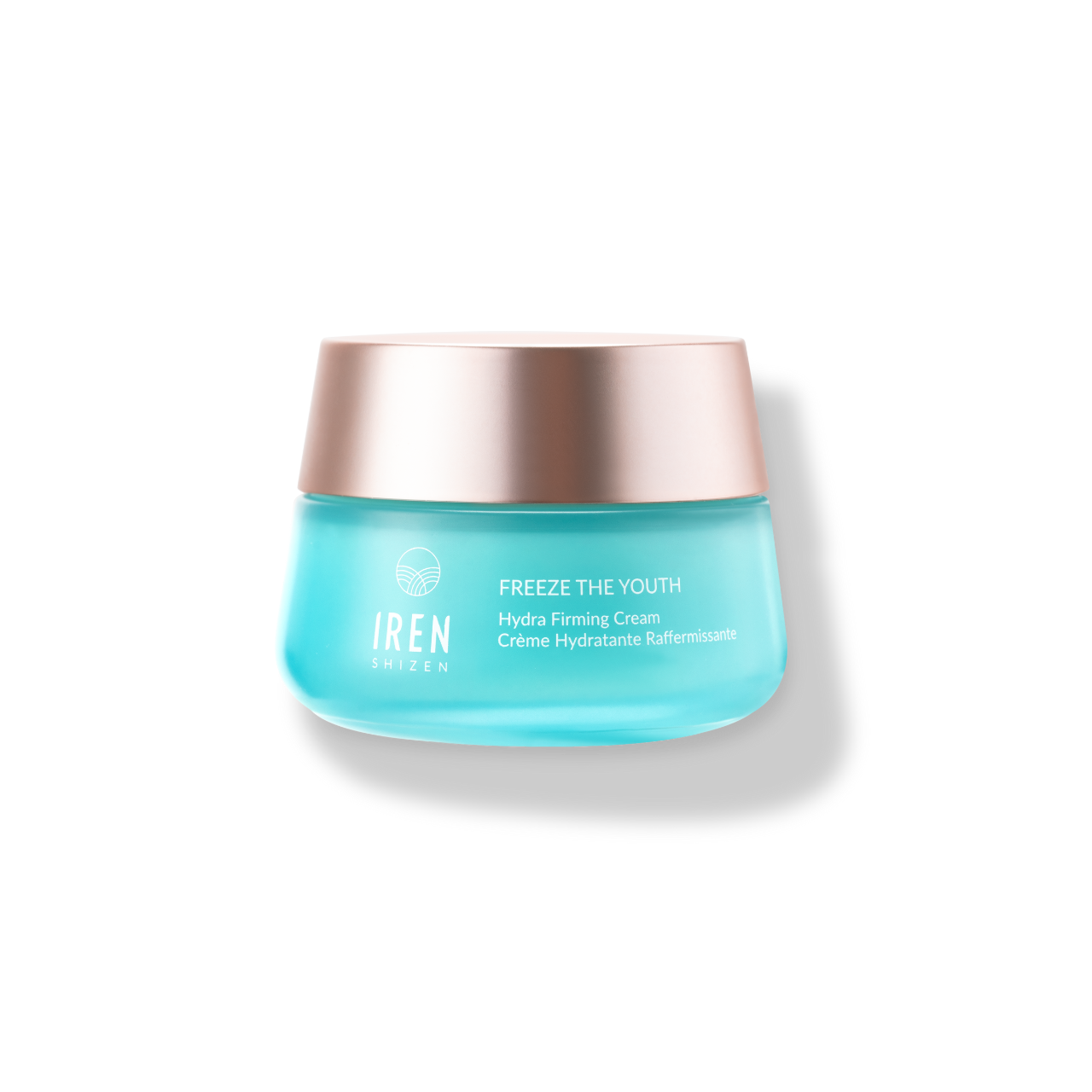Feuchtigkeitspflege
Verwöhnen Sie Ihre Haut mit regenerierenden Feuchtigkeitscremes, die zu 99 % aus natürlichen Inhaltsstoffen bestehen – angereichert mit zellerneuernden japanischen Pflanzenextrakten und hochwirksamen Aktivstoffen. Jede ölfreie Formel wird mit größter Sorgfalt entwickelt, um selbst empfindlichste Haut zu beruhigen und zu revitalisieren – ganz ohne Silikone, Konservierungsstoffe oder Alkohol.
Feuchtigkeitscremes vergleichen
Warum sollten Sie auf silikonfreie Feuchtigkeitscremes umsteigen?
Stellen Sie sich vor, Ihre Haut atmet erleichtert auf, befreit von der unsichtbaren Last, die sie tragen musste. Silikonhaltige Inhaltsstoffe wie Dimethicone sind das Rückgrat von Hautpflegeprogrammen für ein samtiges Finish, aber es steckt mehr dahinter, als man auf den ersten Blick sieht.
Silikone sind zu einem festen Bestandteil vieler Feuchtigkeitscremes geworden, da sie eine glatte Anwendung ermöglichen und als Barriere wirken, die die Feuchtigkeitscreme versiegelt. Unter der glatten Oberfläche können Silikone jedoch eine weniger günstige Realität für Ihre Haut und die Umwelt verbergen. Geschichten über verstopfte Poren und Umweltprobleme haben eine Bewegung hin zu silikonfreien Schönheitsprodukten ausgelöst. Während die glänzende Oberfläche dem Bewusstsein weicht, entsteht ein empfindliches Gleichgewicht, und die Erforschung potenzieller Nebenwirkungen beginnt.
Silikonbestandteile verstehen
Im Bereich der Hautpflege sind silikonbasierte Inhaltsstoffe wie Cyclopentasiloxan, Cyclohexasiloxan und Dimethicon weit verbreitet. Diese Silikone sind dafür bekannt, dass sie der Haut ein samtiges Gefühl verleihen, wirken aber im Grunde eher als Oberflächenmittel denn als echte Feuchtigkeitsspender. Anstatt in die Haut einzudringen und sie mit Feuchtigkeit zu versorgen, bilden sie eine Schutzbarriere, die dem Teint eine glatte und geschmeidige Textur verleihen kann.
Diese Funktion ist jedoch mit einer Einschränkung verbunden. Inhaltsstoffe wie Cyclopentasiloxan und Cyclohexasiloxan können zwar den Eindruck hydratisierter Haut erwecken, können aber unter ihrem okklusiven Schleier möglicherweise zur Dehydrierung beitragen. Das liegt daran, dass ihre hydrophobe Natur zwar den Wasserverlust verhindern kann, aber auch bedeutet, dass natürliche Feuchtigkeit die Hautoberfläche nicht effektiv erreichen kann.
Darüber hinaus können Silikone aufgrund ihrer okklusiven Eigenschaften möglicherweise Schmutz und Hautfette einschließen und so die natürliche Fähigkeit der Haut, abgestorbene Hautzellen abzuschälen, behindern. Dies kann zu Problemen wie verstopften Poren und einer behinderten Zellerneuerung führen, was häufig bei Menschen mit zu Akne neigender Haut ein Problem darstellt. Daher suchen Hautpflegefans möglicherweise nach silikonfreien Feuchtigkeitscremes, insbesondere wenn sie Ausbrüche erlebt haben, die mit diesen Inhaltsstoffen in Verbindung stehen.
Die Rolle von Dimethicon in Hautpflegeprodukten
Dimethicon ist zweifellos eines der am weitesten verbreiteten Silikone in Hautpflegeprodukten. Dieses Silikonderivat wird oft für seine Fähigkeit gelobt, eine weiche, gleichmäßige Textur auf der Haut zu erzeugen und für seine Funktion als Erweichungsmittel. Viele Menschen genießen das seidige, nicht fettende Finish, das es der Haut verleiht, was es zu einem attraktiven Inhaltsstoff in vielen Kosmetikprodukten macht.
Trotz dieser ästhetischen Vorteile ist der Ruf von Dimethicon nicht ohne Makel. Einige Personen mit empfindlicher oder zu Akne neigender Haut berichten, dass Produkte mit Dimethicon zu Ausbrüchen und anderen Hautreizungen führen. Es kann ein Okklusivmittel sein, das Feuchtigkeit einschließt, aber es kann auch Akne verursachende Bakterien und Öle einschließen und so die Hautverstopfung verschlimmern.
Silikonfreie Feuchtigkeitscremes umgehen diese potenzielle Gefahr, indem sie auf Inhaltsstoffe wie Dimethicon verzichten und stattdessen Alternativen verwenden, die die Haut pflegen, ohne die Poren zu verstopfen. Diese Alternativen richten sich an Verbraucher, die Produkte benötigen, die die natürlichen Atmungs- und Erneuerungsprozesse der Haut unterstützen, und entsprechen der wachsenden Nachfrage nach umweltfreundlichen und bioakkumulationsfreien Formulierungen. Durch die Entscheidung für eine silikonfreie Feuchtigkeitscreme können Benutzer mit empfindlicher oder zu Akne neigender Haut die Vorteile der Feuchtigkeitsversorgung genießen, ohne sich über die Auslöser Gedanken machen zu müssen, die zu Ausbrüchen oder Empfindlichkeit führen könnten.
Negative Auswirkungen von Silikonen auf die Haut
Silikone, die für ihre glättende Wirkung in der Hautpflege gelobt werden, haben eine weniger wünschenswerte Nebenwirkung, die sich auf die Hautgesundheit auswirken kann. Während sie Wunder wirken, wenn es darum geht, taktile Eleganz zu verleihen und Feuchtigkeit einzuschließen, können diese okklusiven Verbindungen unbeabsichtigt die natürliche Feuchtigkeitsversorgung der Haut verringern und möglicherweise ihren pH-Wert verändern. Diese Veränderung kann den Weg für Empfindlichkeit und Reizung ebnen und die natürliche Abwehrbarriere der Haut beeinträchtigen. Darüber hinaus können Silikone durch die Bildung einer Oberflächenversiegelung einen Cocktail aus Schmutz, Unreinheiten und Bakterien auf der Haut einschließen. Diese Ansammlung kann Hautprobleme verschlimmern, von kleineren Ausbrüchen bis hin zu schwerwiegenderen Erkrankungen.
Durch ihre okklusiven Eigenschaften können Silikone eine Überaktivität der Talgdrüsen auslösen. Diese Reaktion kann zu einer übermäßigen Talgproduktion führen, was zu einem unerwünschten öligen Glanz auf der Hautoberfläche führt und einen ewigen Kreislauf aus Ungleichgewicht und Glanz erzeugt. Personen mit natürlich empfindlicher oder fettiger Haut können bei kontinuierlicher Verwendung silikonhaltiger Produkte eine merkliche Verschlimmerung dieser Hautzustände erleben.
Wie Silikone Ausbrüche und verstopfte Poren verursachen können
Silikone in Hautpflegeprodukten können für Menschen, die zu Ausschlägen und verstopften Poren neigen, ein zweischneidiges Schwert sein. Ihre Fähigkeit, Feuchtigkeit einzuschließen, bedeutet auch, dass sie als Barriere über der Haut wirken, was nicht unbedingt vorteilhaft sein kann. Diese Schicht behindert den lebenswichtigen Transpirationsprozess, bei dem die Haut atmen und Giftstoffe abgeben muss. Wenn diese Atmung behindert wird, können die Poren verstopft werden, was den Boden für Akneschübe bereitet. Die Ironie ist, dass Silikon selbst zwar nicht als Reizstoff gilt, seine okklusive Natur jedoch zu einer Hautumgebung führen kann, die Empfindlichkeit und Akne begünstigt.
Personen mit empfindlicher oder trockener Haut wird häufig geraten, bei Hautpflegeprodukten mit Silikonen vorsichtig zu sein. Solche Inhaltsstoffe können die Hautpflege erschweren, indem sie die Talgproduktion verstärken und Reizungen hervorrufen. Durch die schrittweise Umstellung auf silikonfreie Feuchtigkeitscremes können Personen mit empfindlicher Haut weniger Reizungen, weniger Talgstau und eine insgesamt verbesserte Hautreinheit feststellen – frei von Ausbrüchen und produktbedingten Verstopfungen.
Ökologische Bedenken: Bioakkumulationseigenschaften von Silikonbestandteilen
Angesichts der Umweltaspekte müssen wir die langfristigen Auswirkungen von Silikonbestandteilen in unseren Hautpflegeprodukten genau untersuchen. Silikone, die so hergestellt sind, dass sie dauerhaft auf der Haut verbleiben, verleihen uns einen herrlich weichen Teint. Diese Widerstandsfähigkeit wirft jedoch Fragen zu ihrer Wechselwirkung mit der Hautbarriere – nämlich den Hornschichtlipiden – und ihrem Potenzial auf, sich im Laufe der Zeit anzusammeln. Wissenschaftliche Untersuchungen legen nahe, dass diese persistenten Verbindungen nicht spurlos verschwinden; sie können stattdessen sowohl auf der Haut als auch in der Umwelt verbleiben.
Diese Persistenz unterstreicht ein dringendes ökologisches Problem: die bioakkumulative Natur bestimmter Silikonmoleküle, die in kosmetischen Rezepturen verwendet werden. Bei kontinuierlicher Anwendung und unzureichender Entfernung können Silikone die Barrierefunktion der Haut beeinträchtigen und aufgrund ihrer Langlebigkeit und Abbaubeständigkeit zu Umweltproblemen beitragen. Sobald sie in den Abfluss gespült werden, tragen sie zur Schlammbildung in Ozeanen und Gewässern bei und zerfallen möglicherweise erst nach Hunderten von Jahren.
Wenn wir die Vorteile einer seidenweichen Haut gegen diese bioakkumulativen Eigenschaften abwägen, wird die Umstellung auf umweltfreundlichere und gesundheitsbewusstere Hautpflegeprodukte zu einer persönlichen Entscheidung und einer kollektiven Verantwortung.
Alternativen für Feuchtigkeitscremes auf Silikonbasis finden
Die richtige Feuchtigkeitscreme zu finden, kann für die Verbesserung der Hautgesundheit entscheidend sein, insbesondere wenn Sie nach Optionen ohne silikonhaltige Inhaltsstoffe suchen, die dafür bekannt sind, dass sie die Poren verstopfen und Akne verschlimmern können. Die Entscheidung für silikonfreie Feuchtigkeitscremes ist für alle ratsam, die die Fallstricke okklusiver Barrieren vermeiden möchten, die Schmutz und Öl auf der Hautoberfläche festsetzen können. Diese nicht komedogenen oder ölfreien Alternativen sind speziell darauf ausgelegt, die Haut zu pflegen, ohne zu Verstopfungen zu führen oder Probleme mit fettiger Haut zu verschlimmern.
Feuchtigkeitscremes ohne Silikone bieten unzählige Vorteile. Sie bestehen meist aus Inhaltsstoffen, die den natürlichen Talg der Haut nachahmen und die notwendige Feuchtigkeit spenden, ohne zu einer Überproduktion von Ölen beizutragen. Für alle, die eine ausgeglichene, reinere Haut wünschen, können diese Feuchtigkeitscremes das Risiko von Ausbrüchen verringern und eine normalere und verfeinerte Hautstruktur fördern. Sie sind besonders nützlich für Menschen mit Mischhaut oder zu Akne neigender Haut, die eine wirksame Feuchtigkeitsversorgung ohne zusätzliches Öl benötigen, das ihren Zustand verschlechtern kann.
Feuchtigkeitscremes ohne Silikone können für Personen mit empfindlicher oder trockener Haut eine Rettung sein. Diese Formulierungen unterstützen den natürlichen Atmungsprozess der Haut und fördern eine gesündere Barrierefunktion, während gleichzeitig ein ausreichender Feuchtigkeitsgehalt aufrechterhalten wird. Infolgedessen berichten Anwender oft von einer Verbesserung nicht nur der Feuchtigkeitsversorgung, sondern auch der allgemeinen Gesundheit und des Aussehens der Haut.
Die Umstellung auf eine silikonfreie Formel ebnet den Weg für einen natürlicheren und hautfreundlicheren Ansatz bei der Körperpflege. Der Verzicht auf Silikone in der Hautpflegeroutine kann den wahren Zustand der darunter liegenden Haut offenlegen, eine bessere Aufnahme nützlicher Inhaltsstoffe ermöglichen und die inhärente Fähigkeit der Haut zur Selbstregulierung unterstützen.
Erforschung umweltfreundlicher und nicht okklusiver Inhaltsstoffe
In unserer umweltbewussten Zeit steigt die Nachfrage nach Hautpflegeprodukten, die die Gesundheit der Haut und die Umweltverträglichkeit berücksichtigen. Silikonfreie Feuchtigkeitscremes sind auf dem Vormarsch und bieten Mischungen mit umweltfreundlichen und nicht okklusiven Inhaltsstoffen, die für eine kompromisslose Feuchtigkeitsversorgung und ethische Sicherheit erforderlich sind.
Feuchtigkeitsspendende Wirkstoffe wie Aloe-Blattsaft und Grüntee-Extrakt stehen bei umweltbewusster Hautpflege an erster Stelle. Sie spenden Feuchtigkeit, ohne zu beschweren oder die Poren zu verstopfen, was ideal für trockene Haut ist. Diese natürlichen Extrakte werden für ihre beruhigenden und antioxidativen Eigenschaften geschätzt, bieten schmerzstillende Linderung und sind selbst für die empfindlichsten Hauttypen geeignet.
Die Einbeziehung von Niacinamid, Peptiden und Vitamin E in diese Formulierungen unterstreicht das Engagement für die Vitalität der Haut. Niacinamid, eine Form von Vitamin B3, wird dafür gelobt, das Erscheinungsbild vergrößerter Poren und feiner Linien zu verbessern, während Peptide die Kollagenproduktion für ein jugendlicheres Hautbild unterstützen. Vitamin E ist ein pflegendes Antioxidans, das die Haut vor Umweltbelastungen schützt.
Darüber hinaus enthalten einige silikonfreie Feuchtigkeitscremes Inhaltsstoffe wie Hyaluronsäure, die für ihre außergewöhnliche Fähigkeit bekannt ist, Feuchtigkeit zu speichern, und PHAs (Polyhydroxysäuren), die ein sanftes Peeling ermöglichen, ohne die Haut auszutrocknen. Diese Inhaltsstoffe wirken synergetisch, um den Feuchtigkeitsgehalt aufrechtzuerhalten und eine glattere, strahlendere Hautoberfläche zu fördern, was bei trockener Haut hervorragend funktioniert.
Für diejenigen, die ihre Hautbarriere gezielt stärken möchten, bieten Formulierungen mit Präbiotika und Postbiotika einen umfassenden Ansatz zur Hautpflege. Sie unterstützen gleichzeitig das Mikrobiom der Haut und stärken ihre Abwehrkräfte gegen äußere Einflüsse. Diese Feuchtigkeitscremes verzichten oft auf aggressive Alkohole, Silikone und Sulfate und entsprechen damit umweltfreundlichen und hautbewussten Standards.
Und schließlich sind Feuchtigkeitscremes auf Gelbasis mit Kamille, Aloe Vera und grünem Tee hervorragend für problematische oder empfindliche Haut geeignet. Ihre leichte Textur beruhigt empfindliche Haut und wirkt entzündungshemmend, ohne sie fettig zu machen. Diese leichte Formel unterstreicht den Trend hin zu sorgfältig zusammengestellten, nicht-okklusiven Hautpflegelösungen.
Beste Feuchtigkeitscremes für zu Akne neigende und empfindliche Haut
Auf der Suche nach dem heiligen Gral der Feuchtigkeitscremes für zu Akne neigende und empfindliche Haut wendet man sich häufig Produkten mit Silikonen zu und wendet sich hautverträglicheren, klareren Rezepturen zu. Feuchtigkeitscremes ohne Silikone sind ein Segen für Menschen mit diesen Hauttypen, da sie wichtige Feuchtigkeit liefern, ohne die Poren zu verstopfen oder bestehende Hautprobleme zu verschlimmern.
Nicht komedogene oder ölfreie Feuchtigkeitscremes dienen als Orientierungshilfe für alle, die sich auf dem riesigen Hautpflegemarkt umsehen, und bieten einen sicheren Hafen für zu Akne neigende Gesichter. Durch den Verzicht auf Inhaltsstoffe wie Dimethicon und Cyclopentasiloxan, die Schmutz und Talg einfangen können, sind diese Feuchtigkeitscremes darauf ausgelegt, die Poren sauber zu halten und der Haut gleichzeitig die Feuchtigkeit zu geben, die sie braucht.
Die natürliche Einstellung silikonfreier Produkte führt im Allgemeinen zu Rezepturen, die reich an hautfreundlichen Inhaltsstoffen sind, die mit der körpereigenen Chemie harmonieren. Diese Feuchtigkeitsspender sind frei von synthetischen Okklusivstoffen und unterstützen die wesentlichen Funktionen der Haut, wie Selbstreparatur und Erneuerung. Sie tragen dazu bei, die Wahrscheinlichkeit von Akneausbrüchen zu verringern und sorgen für ein gleichmäßigeres, beruhigteres Hautbild.
Bei empfindlicher oder trockener Haut können silikonfreie Feuchtigkeitscremes mit ihrer sanften Wirkung Reizungen und Empfindlichkeiten lindern, die aggressivere, synthetischere Produkte möglicherweise hervorrufen. Diese Formeln konzentrieren sich auf Reinheit und Einfachheit und helfen, reaktive Haut zu stabilisieren. Dabei wird sichergestellt, dass jeder Inhaltsstoff einen Zweck erfüllt, der mit der Pflege und dem Schutz der empfindlichen Hautbarriere zusammenhängt.
Abschließend lässt sich sagen, dass sich silikonfreie Feuchtigkeitscremes als eine kluge Wahl für eine Reihe von Hautproblemen erweisen, ganz gleich, ob es um den Bedarf nach einer nicht reizenden Lösung zur Aknevorbeugung geht oder um einen Schritt in Richtung einer umweltfreundlicheren Hautpflegeroutine, denn sie schonen sowohl den Teint des Einzelnen als auch die Welt um uns herum.
